BUSINESS
SUPERSTARS IN EDUCATION & TRAINING
Programs that work for our workforce


Programs that work for our workforce

You already know an education is valuable. But did you also know that it’s possible? With an affordable, flexible education, Del Tech is ready to make your path to becoming an educator a reality.
Enroll today. Visit dtcc.edu.

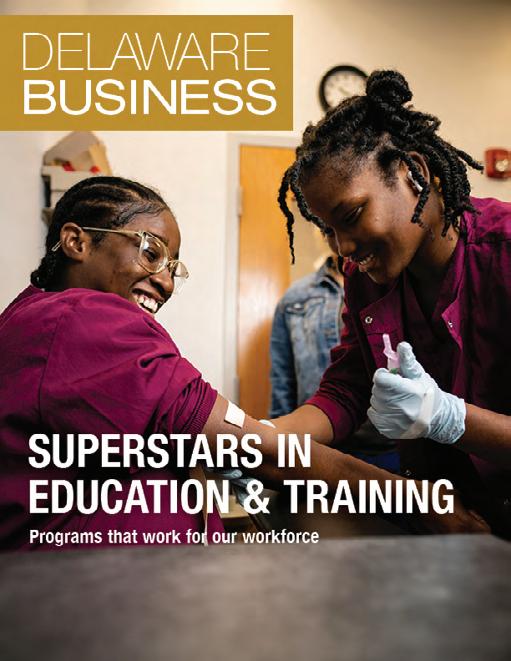
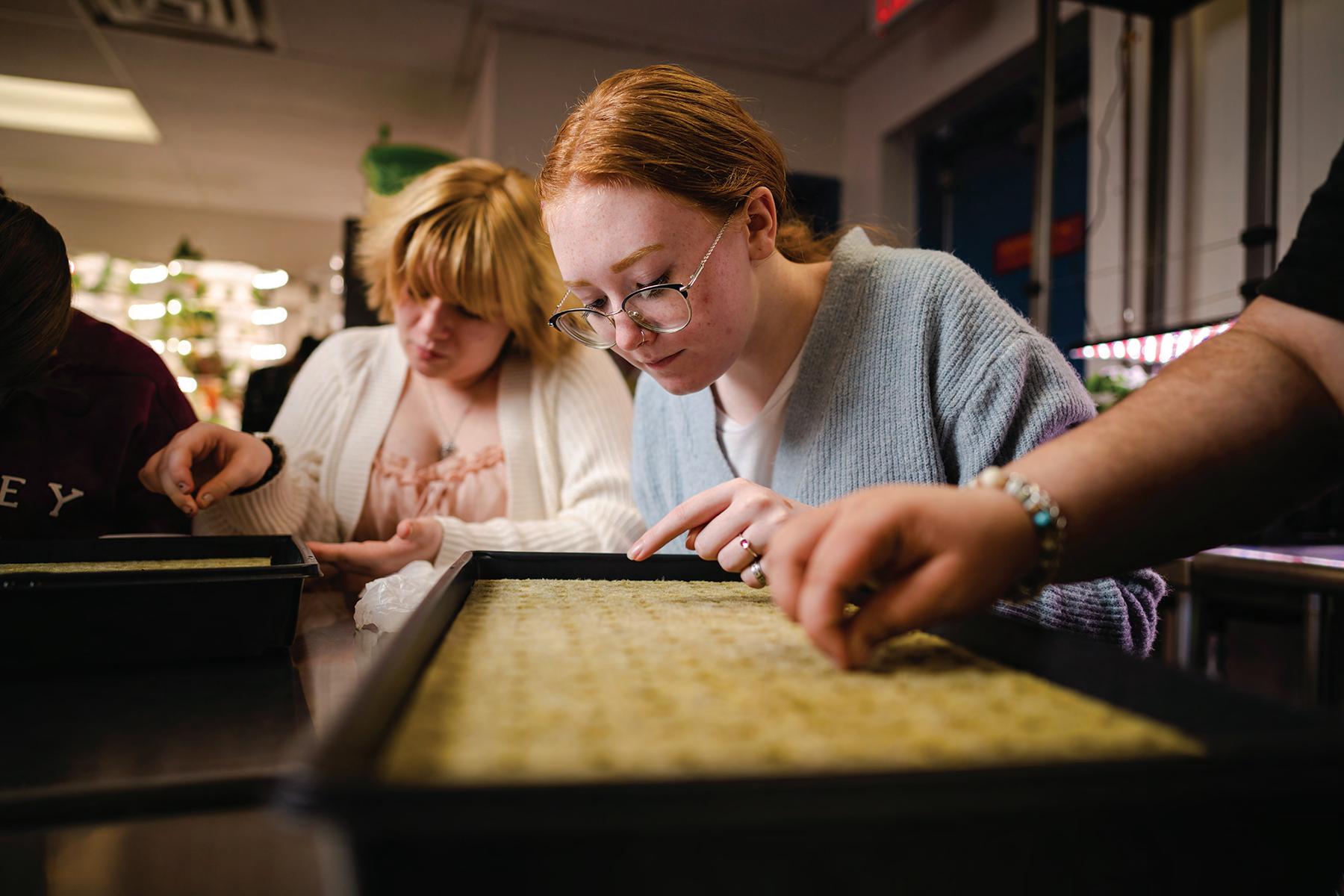
The overwhelming number of businesses in Delaware and, for that matter, across the country are small businesses with fewer than 50 employees. So here is a pro tip that “the big guys” use regularly. Get yourselves a summer intern or two, preferably a college student going into their senior year of school. This can be someone studying human resources, finance, bookkeeping, accounting, marketing, or things more technical like engineering, chemistry, or technology. Begin by reaching out to us or area colleges for help finding potential candidates. Do this now as many students will be looking for paid summer work to cover their summer needs or save money for the upcoming fall semester.
As a State Chamber member, you can enroll them in our Intern Delaware program that helps your interns learn more about Delaware, connect with other interns employed with other businesses, and feel more at home with you and our community. The goal of the Intern Delaware program is to help you—our members—keep talented people in our state and employed with businesses like yours.
Similarly, apprenticeship programs abound within our state for employers looking to hire people into the construction trades, healthcare, utility industry, warehousing, fabrication, and more. You can easily find programs for young adults starting out in the work world, or mid-career individuals looking for a change or better financial opportunity. Some of the very best education and training programs are recognized each year through our Superstars in Education and Training program, which shines a spotlight on programs that work. Our awards program allows for others to understand the importance, the impact, and how they too can assist in the effort of building up Delaware’s most important resource—our people. Our hope is that these programs can be replicated in other industries so that we, as a state, continue building talent pipelines.
Success in the future will go to the states that ready their workforce, keep up with changes, and remain fresh in the face of an evolving, dynamic, and sometimes disruptive world of business. It’s an exciting time and the opportunity to latch on to some very good people and make them your employee is available to you right here and right now.
EDITORIAL STAFF
Nick Lambrow Chair Michael J. Quaranta President Kelly Basile Editor Christina Jones Graphic Design
CHAIR
Nick Lambrow M&T Bank
VICE CHAIR
Marie Holliday, CPA Cover & Rossiter
Catherine M. Bassett
Mountaire Farms
Steve Chambliss Brookfield Properties
Andrew Cottone, Ph.D. ADESIS
Jason D. Gonzalez DuPont
John C. Gooden
M. Davis & Sons, Inc.
Dr. LaVerne T. Harmon Wilmington University
Tony Allen, Ph.D.
Delaware State University
Pierre Anderson
Artesian Water Company, Inc.
Steve Baccino
Chesapeake Utilities
Chris Baker
George & Lynch, Inc,
Greg Ballance
Diamond Technologies
Mike B. Berardi
Wohlsen Construction Co.
Robert A. Book II
Delaware Electric Cooperative
Julian H. “Pete” Booker
Delaware Public Media
Jennifer Gimler Brady
Potter Anderson & Corroon LLP
Dr. Mark T. Brainard
Delaware Technical Community College
Beth G. Brand University of Delaware
Kevin C. Broadhurst Comcast
Robert L. Byrd
ByrdGomes
Patrick Callihan Tech Impact
Stuart Comstock-Gay Delaware Community Foundation
Charlie Copeland Associates International, Inc.
Pam Cornforth
Ronald McDonald House of Delaware, Inc.
Barry Crozier Belfint, Lyons & Shuman, ret.
Joseph Cruise GT USA Wilmington
Jason Danner
Kelly Benefits Strategies
Rick Deadwyler
Corteva Agriscience™
Marta DeLisi
Beasley Media Group
Ernest Dianastasis The Precisionists, Inc.
Kelly Basile Vice President, Strategic Communications
Tom Horne
JPMorgan Chase
Natalie Keefer Bank of America
Rodger Levenson WSFS Bank
Barbara McCullough
AstraZeneca Pharmaceuticals LP
Brian DiSabatino EDiS Company
Walter Donaldson Freeh Sporkin & Sullivan, LLP
Lisa M. Donlon, PE VanDemark & Lynch
Denis Dunn AT&T, Delaware
Thère du Pont Longwood Foundation
Jerry Esposito Espo Enterprises, LLC
G. Kevin Fasic, Esq.

Offit Kurman
Michael T. French
Belfint, Lyons & Shuman
Don Fulton
Weiner Benefits Group
Martha S. Gilman
Cornell Property Management Corp.
Joseph A. Giordano*
Whisman Giordano & Associates, LLC
A. Richard Heffron
Delaware State Chamber of Commerce, ret.
Kirsten Higgins
Tidewater Utilities, Inc.
Michael Houghton Morris, Nichols, Arsht & Tunnell, LLP
Tim Houseal Young Conaway Stargatt & Taylor, LLP
Mark Hutton M&T Bank
Mona Jantzi
Barclays US Consumer Bank
LeVar Johnson
Novo Nordisk
Jeffrey Joseph PNC Bank
Christopher L. Kenny ShopRites of Delaware
Matthew Lantagne
TD Bank
Richard H. LaPenta CBM Insurance
Melissa Brayman Office Administrator
Regina Donato Manager, Program & Communications
Michael A. Meoli
The Meoli Group
Nicholas A. Moriello, RHU Highmark BCBS Delaware
Janice Nevin, M.D., MPH
ChristianaCare
Stephan Lehm
VanDemark & Lynch, ret.
Alan Levin
SoDel Concepts
Andy Lubin
Delaware Financial Group
Mac Macleod
Carvertise
Scott Malfitano
CSC
William E. Manning
Saul Ewing Arnstein & Lehr
Guy Marcozzi
Verdantas
Paul M. McConnell
McConnell Development, Inc.
Jeff Mitchell
Siegfried Advisory
W. Douglas Mokoid
Delmarva Power
Chad Moore
Beacon Hospitality
LaKresha R. Moultrie, Esq.
Delaware State University
Mark Mumford
Nemours Children’s Health System
Terry Murphy Bayhealth Medical Center
Chris O’Neill
PSCI
Jed Patterson LabWare
Chris Perdue
Perdue Farms
Robert W. Perkins
Brandywine Public Strategies
Colleen Perry Keith, Ph.D.
Goldey-Beacom College
Theodore J. Prushinski
Citizens Bank
Michael Ratchford
W. L. Gore & Associates, Inc.
Robert (Rob) Rider, Jr.
O.A. Newton
Bettina Tweardy Riveros
ChristianaCare
Ken Evans Account Executive
Tyler Micik Director, Public Policy & Government Relations
Salvatore J. “Chip” Rossi Bank of America
James J. Roszkowski
Discover Bank
Rhett Ruggerio
Ruggerio Willson & Watson
Dennis M. Salter
Edinburgh Capital Management LLC
Greg Sawka Bancroft Construction Company
Chris Schell Schell Brothers
Fred C. Sears II
Delaware Community Foundation, ret.
Greg Smith
The Chemours Company
Michael Smith
Navient
Robert S. Smith
Santora CPA Group
William Smith Environmental Alliance
Mark Stellini Assurance Media
David Tam, M.D.
Beebe Healthcare
Jim Taylor
Saul Ewing Arnstein & Lehr
James Tevebaugh
Tevebaugh Architecture
Jana Tidwell
AAA Club Alliance
Michael S. Uffner AutoTeam Delaware
Rebecca Veeneman, Ph.D. Agilent Technologies
Ann B. Wayne, BSN, RN
SUN Behavioral Delaware
Robert W. Whetzel
Richards, Layton & Finger
Katie K. Wilkinson
Fulton Bank
Robert Wirth
DuPont Country Club
Kevin M. Wolfgang
Evergreen Apartment Group
*Treasurer
Fred Miller Advertising/Retention
Helana Rodriguez Director, The Partnership
Kerri Welcher Events Manager
AT THE TIME of writing this article, only a few days remain before the General Assembly goes on Easter Break for two weeks. They return to session on April 25. That leaves a little over two months left of session, and while a significant amount of work has been done, there’s still plenty of issues to be debated before they adjourn on June 30.
Most notably thus far was the passage of recreational marijuana legalization. Both bills—HB 1 and 2—are now with the Governor for signature. While it’s uncertain at the time of this writing whether the Governor will sign, veto, or decide to take no action (in which case the bills would become law), it’s likely the legislation will be enacted. So far, 21 states—along with Washington, D.C. and Guam—have legalized recreational marijuana. Should Delaware become the 22nd state, the next steps will be for the state to stand up the structure laid out in the legislation to administer and regulate the new industry. House Bill 2, specifically, establishes a marijuana commissioner position under the Department of Alcohol and Tobacco Enforcement, which would also be expanded to create an Office of the Marijuana Commissioner and Appeals Commission.
A package of four bills—HB 101, 102, 103, and 104— sponsored by Representative Bush was introduced at the end of March. The State Chamber supports these bills, known as Ready in 6. They are a crucial step in improving and speeding up the permitting process for economic development projects in Delaware, in a manner that by no means compromises or puts public health and safety at risk. They could also help create good paying jobs and opportunities for Delawareans.
The State Chamber is also engaged in conversations and working with other stakeholders on the Climate Change Solutions Act (formerly known as SB 305) and a comprehensive data privacy bill sponsored by Representative Griffith. Both bills have yet to be introduced, but the State Chamber has received
draft copies and shared them with our membership for feedback. Other bills the State Chamber is following include SB 51, Polystyrene; HB 98, Notice Requirements for DNREC Permits; HB 89, Personal Income Taxes; HB 36, Realty Transfer Tax; SB 58, Removal of Copay Requirements for Delaware Families in Need; SB 59, Statewide Rate of Purchase of Care for Child Care Providers; HB 41, Digital Right to Repair; and SB 43, Human Trafficking Signs. There are also two draft bills we expect to be introduced. The first addresses the availability and enforcement of accessible parking spaces and the second would redefine domestic violence as it applies to employment discrimination. We will continue to keep our members updated as we have conversations with policymakers on these bills, and in some cases, work to amend them. Our members’ engagement and feedback continue to be an important part of the process. We encourage you to attend a committee hearing to testify on a bill you care about; join a State Chamber policy committee; and attend events like our End-of-Session Policy Conference on June 7 where you’ll have the opportunity to meet with legislators and talk about the issues impacting your business.


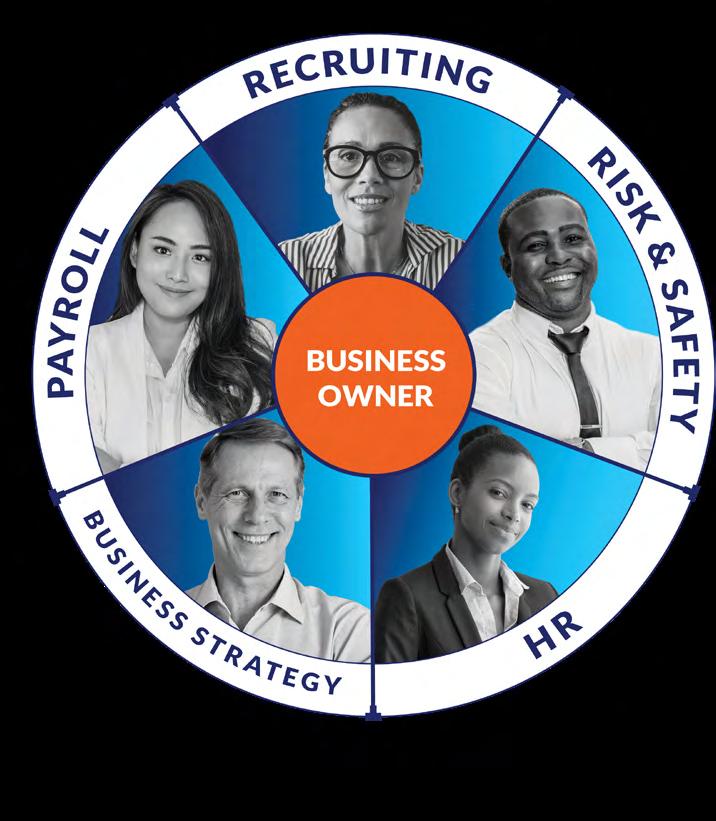



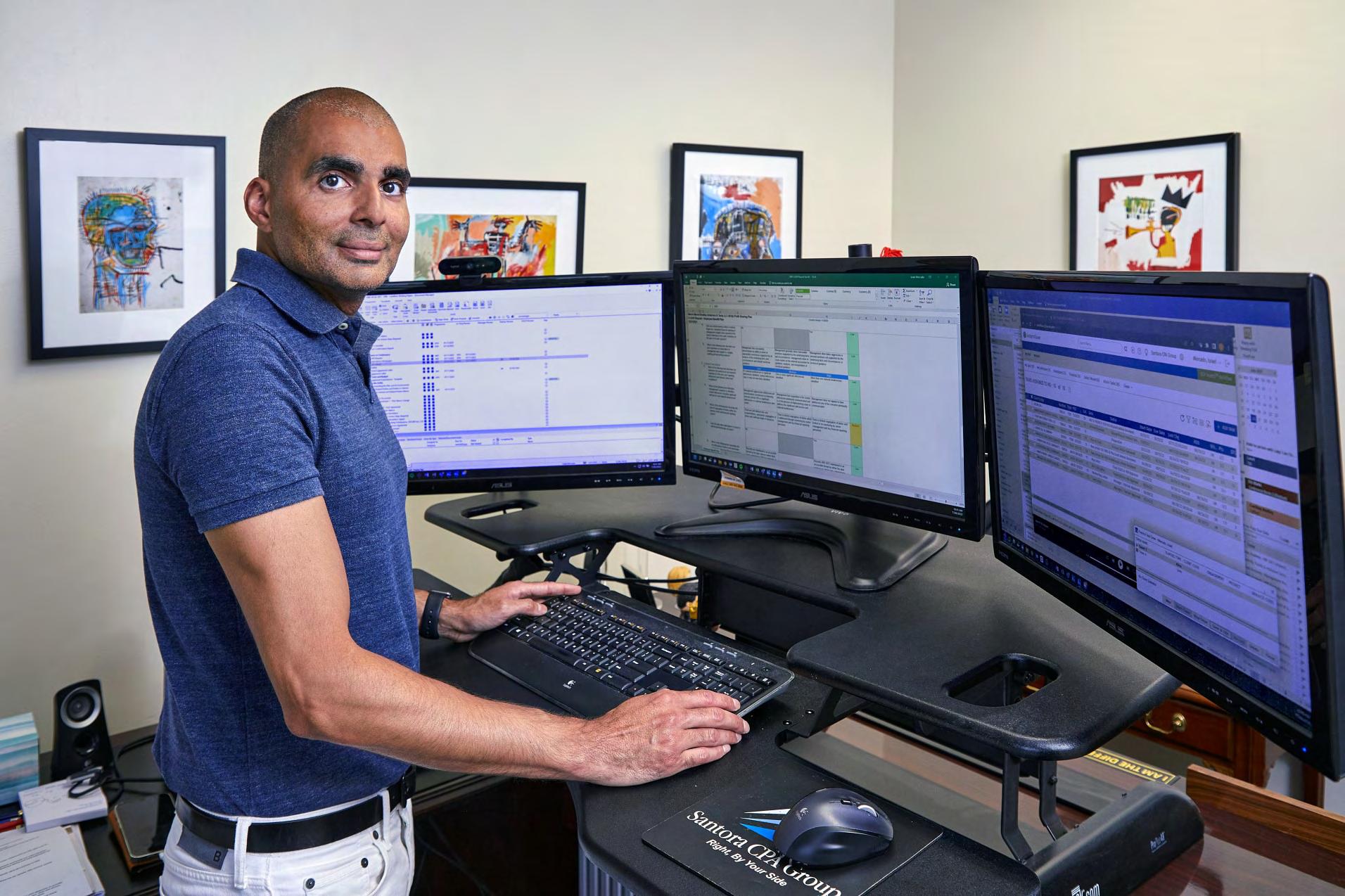

››According to 2020 census data, over 10% of Delawareans are Hispanic. This number is growing yearly, especially in Sussex County where populations rose nearly 60% since 2010. An increased population means an increased demand for media that caters to this audience. Despite Spanish being the second-most spoken language in the state, there was littleto-no representation within Delaware media for years. Kevin Andrade, CEO of The Voice Radio Network in Georgetown, sought to change that.
Andrade started his career as a radio broadcaster over 30 years ago in Ecuador, his native country. He took a risk and left his success in Ecuador to make a life and career for himself in the United States. Turning down opportunities in Latin-rich Miami, he settled in Delaware and took advantage of the striking lack of Hispanic radio stations in the state. “At first, I had no idea where Delaware was, but I visited here and I fell in love,” he reflects. “Everything I saw on the horizon was full of opportunity.”

Andrade began breaking the mold in Delaware by hosting a Spanish Sunday radio show on WGMD 92.7 for several years. There was nothing like it at the time in the area. In 2010, Andrade took another leap by leasing WJWL 900 AM in Georgetown. After the owner of this station passed away, the family sold the radio group. Andrade jumped on the opportunity.
In 2014, the sale was solidified, resulting in Andrade purchasing four FM and two AM stations. This package of stations became The Voice Radio Network, which currently employs a staff of 29 and operates 10 frequencies throughout the region, reaching people of all races and cultures in all three Delaware counties, as well as neighboring states Pennsylvania, New Jersey, and Maryland. The Voice Radio Network was proudly the first minorityowned radio group in the region.
“I don’t like to be the boss; I like to be a leader,” says Andrade. “I like to
build resources and opportunities for my staff and the community.” In the last nine years, Andrade and his team has fostered quite a diverse and supportive company culture at their Georgetown headquarters.
“We facilitate a cohesive and productive environment and culture here. There are many departments within the Voice Radio Network, who all work together as a team when projects are at hand,” explains Sales Director Erin Wood. “And that is beneficial to not only those who work here, but also to people of Delmarva, Pennsylvania and New Jersey, because we serve both Spanish and English-speaking communities.”
Taking the impact of this company even further, Andrade received an offer in February of last year acquire Radio Centro in Ecuador. Through the purchase of the four frequencies in this radio group, The Voice Radio Network’s reach is now intercontinental, with one station now ranked as the top news station in Ecuador. Coincidentally enough, this is one of the stations where Andrade started his radio career nearly three decades ago. The full circle moment is not lost on him.
“I’m very proud of being owner of a station that serves every community in Delaware and beyond,” remarks Andrade. “I feel like I’ve been blessed. My team, my family, and the community around me are a fantastic and important part of what we do here every single day.”
››All Delaware youth deserve a chance to shine their brightest. Unfortunately, not every child has access to positive role models. These youth often struggle to develop confidence in goals, interests, and even themselves. Big Brothers Big Sisters of Delaware (BBBSDE)—a member affiliate of Big Brothers Big Sisters of America—serves to fill this gap by providing specially trained and vetted mentors to meet the unique needs of 1,400 at-risk children every year.
As the oldest one-to-one mentoring organization in Delaware, BBBSDE has built a foundation on perfecting their evidence-based approach since 1964. Adult volunteer mentors (Bigs) are matched with at-risk youth (Littles) based on common interests and the child’s specific needs. These Bigs encourage Littles to see themselves positively and realize their full potential to lead a meaningful future.
Executive Director Anya LindseyJenkins highlights the lasting impact of BBBSDE’s unique approach on children’s lives. “Our mentors provide youth with a friend, role model, and example of a positive community member,” LindseyJenkins states. “This helps increase educational achievement, develop a plan for post-secondary success, and enhance decision-making skills. It also gives youth a meaningful outlet to talk and learn from someone outside of their family.”
Though a year could define a successful connection between a mentor and child, many relationships flourish well beyond the initial program period. Mentors can continue to play a positive role throughout the rest of the child’s K-12 years, even sparking influence for some youth to pursue similar career paths. With a range of flexible options to be involved in the child’s life through shared interests
BY COLIN HEFFINGERsuch as sports games or building robotics, mentors are able to contribute to the child’s life on the time that works best with their busy schedules.

Delaware’s distinctive mentorship approach grew to be immensely successful and was quickly replicated by hundreds of other Big Brother Big Sister agencies across the country. This consistent adoption ensures that at-risk children are provided the best care to build a strong foundation that serves them and their communities for many years to come.
Reflecting on the challenges of schools closing during the COVID-19 pandemic, Lindsey-Jenkins explains the importance of increased demand for mentorship services. “There’s been a year and a half loss of learning for young people,” states Lindsey-Jenkins. “There’s much work to be done. This is a time when our youth really need us and there often isn’t enough mentors to go around.”
As part of our future goals, we’re looking for more mentors to enroll and make a lasting impact,” Lindsey-Jenkins continues. “We’re hopeful to continue seeing young people flourish. Our role in making sure Delaware youth is empowered with what they need to be successful is as significant as ever.”
BBBSDE is always looking for dedicated mentors passionate to have a positive impact on the lives of Delaware youth. Interested volunteers can fill out an application at bbbsde.org/mentoring/apply-tobecome-a-mentor.
The State Chamber’s Environmental Committee met in early April for their quarterly meeting and was joined by Senator Hansen, chair of the Senate Environment, Energy and Transportation Committee, and Representative Heffernan, chair of the House Natural Resources and Energy Committee. Angela Marconi, director of the Division of Air Quality, and Sheeron Fuller, management analyst III, from DNREC also joined the meeting.
Marconi discussed the proposed Title V Fee legislation, which DNREC has been working on in coordination with the State Chamber. At the time of this writing, a draft bill that DNREC and the State Chamber agreed on was being circulated to sponsors. The proposed legislation contains no change to the base and user fees and a decrease in the program fee, which was set in 2020—the last time
BY TYLER MICIKthe fees were assessed. The fees expire and must be reauthorized by the General Assembly every three years. In 2020, the program fee was set at 30% of the combined fees. The proposed legislation reduces the program fee to 5%, meaning a reduction in fees for facilities in the program. Additionally, the legislation includes some clarifying edits to the language regarding committee structure and meeting schedule.
Senator Hansen and Representative Heffernan shared some of their policy priorities for this session and answered questions from committee members. Topics discussed included the Climate Change Solutions Act, net metering, Delaware’s application for a hydrogen hub, and a Department of Energy bill that Hansen plans to introduce, although the timing of that proposal is uncertain.
Lastly, the committee discussed two
letters which the State Chamber sent to DNREC on behalf of the Chamber’s Environmental Committee at the end of March. The first was a response to DNREC’s draft policy for sampling and evaluation of per- and polyfluoroalkyl substances (PFAS) in soil, groundwater, and surface water.
The second letter dealt with recommendations for Brownfields funding and accountability tracking. The Brownfields program is important because it helps developers clean up and place abandoned sites back into use, which could help create new jobs, increase property taxes, and protect natural resources and Greenfields that would be otherwise considered for development.
If you’re interested in learning more and would like to join the State Chamber’s Environmental Committee, please contact me at tmicik@dscc.com.
 RETIREMENT BENEFITS BY COLLEEN DAVIS AND FAYETTA BLAKE
RETIREMENT BENEFITS BY COLLEEN DAVIS AND FAYETTA BLAKE
››For many small businesses, it can be difficult to offer the same employee benefits and perks that larger companies offer. This is especially true when it comes to workplace retirement plans. Most large employers can attract talent by offering 401(k) plans. However, small business owners often find it too burdensome and expensive. As a result, thousands of Delaware businesses lack a retirement plan.
Enter Delaware EARNS.
Last year, HB 205 authorized Delaware to develop and launch a state-run workplace retirement plan. It’s a plan that will be specially designed for small businesses that aren’t able to offer their own retirement plan. The plan, named Delaware EARNS, is modeled after programs that already successfully operate in several other states—like OregonSaves & Illinois Secure Choice.
With Delaware EARNS, Delaware’s Office of the State Treasurer will handle the hard work—designing, managing, and operating. The employer simply needs to enroll employees and make payroll deductions. The goal is to make the process as easy as possible so that employers can help their employees securely save and invest for retirement.
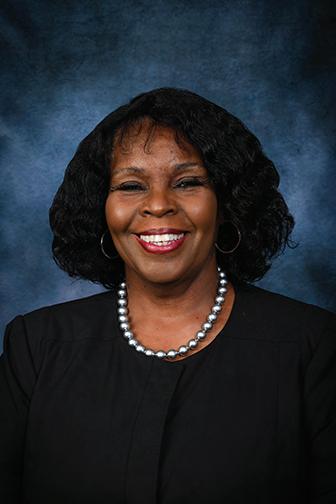
Here’s how it works. When an employee is hired, they’ll receive a notice about Delaware EARNS. If they don’t want to participate, they can opt-out; otherwise, they will be auto-enrolled into Delaware EARNS. Once enrolled, a Roth IRA will

be opened for them, and the employer will deduct a default percentage of their salary and remit it to the Treasurer’s Office. The money will be deposited into the IRA and put into a default investment, but the participant is free to select their own preferred contribution rate and investments instead.
While the program requires some involvement from the employer, it will not present a huge burden, even for the smallest of businesses. Surveys from other states show that employers generally have positive experiences with these programs and do not consider them to be costly or cumbersome.
Also, rest assured that the Office of the State Treasurer has the necessary experience and expertise to manage this plan. The Office’s team already manages the 457(b) & 403(b) retirement plans for state employees, as well as Delaware’s 529 education savings plan. As the Delaware EARNS program is designed, implemented, and administered, the Office is prepared to take the same thoughtful
and responsible management approach they’ve always used to help Delawareans save and invest money.
Keep in mind, however, that Delaware EARNS is not a substitute for offering a 401(k). A 401(k) plan provides employees with important features that Delaware EARNS does not have—for example, a 401(k) has higher contribution limits and permits employer match contributions. However, for employers who are not equipped to offer a 401(k), Delaware EARNS is the next best thing.
Delaware EARNS launches in 2025. Until then, the State Treasurer’s office will be designing the program and setting it up.
EARNS is meant to be easy and convenient for business owners, and you can help by providing your input. Contact EARNS@delaware.gov with comments or questions or visit de.gov/ earns to learn more.
Together, thousands more Delawareans will be supported by getting access to retirement plans, saving for the future, and enjoying a more secure retirement.
››EDiS President and CEO Brian DiSabatino was recently named chairman of the Delaware Business Roundtable (DBRT) for a two-year term. DiSabatino takes over the role from former Chairwoman Dr. Janice Nevin, president and CEO of ChristianaCare. The Roundtable was created in 1981 to enhance the quality of life in Delaware by promoting commerce, job creation, and select public policy issues.
“Our job at the Roundtable is at a macro level—to create the vision and inspiration of future growth in Delaware that ultimately will result in policy improvements and real, tangible prosperity for the greater good of all communities and residents of our great state,” said DiSabatino.

He pointed to the Ready in 6 initiative, a widely supported effort to improve Delaware’s ability to increase economic development by attracting and growing business. He went on to say that since Delaware’s permitting process can stretch up to 24 months, it places the state at a disadvantage when compared to neighboring states like Maryland and Pennsylvania, who have substantially faster permit approvals. The initiative is designed to cut the permitting timeline from 24 months to six months.

DiSabatino further explained that his first focus is evolving and updating the Delaware Growth Agenda, first published by the DBRT in 2016.
With the leadership of Governor Carney and the support of the Delaware General Assembly, the 2016 Growth
Agenda led to the creation of the Delaware Prosperity Partnership (DPP), now the lead economic development agency for Delaware. Since 2018, the DPP has supported $1.39 billion in capital investments and created or retained nearly 7,000 jobs for Delaware residents.
Major initiatives of an updated Growth Agenda would center around helping incoming businesses understand the talent pipeline that already exists from Delaware’s eight higher education institutions, while simultaneously ideating and recommending ways Delaware can be more nimble and effective in attracting incoming businesses.
As an example, he references J.P. Morgan Chase’s recent announcement that it was investing hundreds of millions in its Delaware offices. “This investment makes Delaware second to New York City
in terms of Chase’s real estate prioritization and presence. Making sure employers like Chase want to stay in Delaware is part of our mission at the Roundtable.”
DiSabatino stressed that growing existing and new local small businesses is also a priority. “We have amazing talent already within our reach. It is our responsibility to find ways to help them grow and succeed right here at home, while ensuring better representation and equity through the process.”
“I’m proud to represent this great organization—I’m filling big shoes,” said DiSabatino. “There have been amazing chairmen and chairwomen in the past few decades. Having the opportunity to partner not only with the executives who are fellow members, but also engage with leaders from all sectors throughout the state is an honor.”
To the more than 500 employees at the Delaware Department of Labor (DOL), every day is centered around ensuring their services enable employers and job seekers to make informed employment and training decisions that will ultimately lead to employment. It is the DOL’s Division of Employment & Training (DET) that makes that mission a reality for Delawareans.
DET intentionally works to meet people where they are in an ever increasingly complex job market today. The team of DET professionals are uniquely prepared to offer specialized support for a variety of stakeholders looking to engage with the Delaware workforce.
DET has a dual customer responsibility: assisting employers with finding job
seekers and helping job seekers find employment. It is this kind of public-facing role that sets DET’s work apart from others the work in the employment space.
For example, some jobseekers may have barriers to employment such as a past criminal history or limited work experience. DET offers customized programming that is specifically designed to help people address a past criminal record and gain marketable job skills, as well as employer incentives to hire these candidates.

A web-based job matching and labor market information system, Delaware Job Link (DJL) is free and easy to use. Upon registering, users gain access to job seekers, employers, and training
• Establishing eligibility for state- or federally-funded workforce programs
• Job or candidate searches
• Training or service provider searches
To get started, visit joblink.delaware.gov.
The U.S. Department of Labor created the Federal Bonding Program in 1966. Employers receive the bonds at no cost as an incentive to hire applicants with barriers or may be deemed high risk. Each bond has a $5,000 limit with no deductible and covers the first six months of a selected individual’s employment. Eligible persons can be bonded for an additional six months free of charge. This program provides fidelity bonding insurance coverage to justice
involved persons and other high-risk job applicants who may be denied coverage due to their backgrounds.
• Free to the employer with no deductible for up to 12 months and paid for by the Delaware DOL
• Eliminates bonding as an employment barrier for the applicant and employer
Learn more at bonds4jobs.com.
The Work Opportunity Tax Credit (WOTC) is a federal tax credit available to employers for hiring and employing individuals from certain targeted groups who have faced significant barriers to employment.
APEX helps justice-impacted people with a criminal record seek expungement and pardon. If eligible, one-onone assistance is provided through each step of the process to help a person apply. Learn more at labor.delaware.gov/apex.
Be encouraged and know that you have a partner in the Delaware Department of Labor to take advantage of a real second chance. We look forward to working with you.
››An important component to the overall success of the Delaware State Chamber each year is the work done by our policy committees. I think of them as spokes on a wheel—providing critical support and connection for the entire organization.
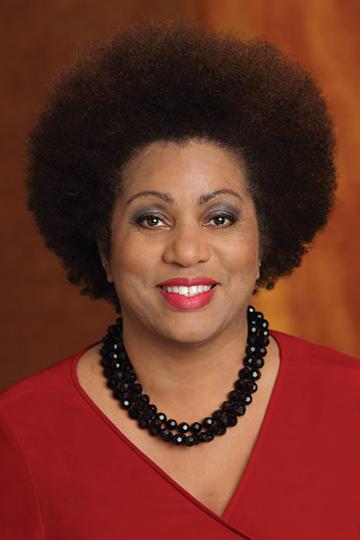
For those who aren’t familiar with our committees, the State Chamber offers its members participation on 11 different subgroups:
• Employer Advocacy Committee and its Healthcare Sub-Committee;
• Environmental Committee;
• Tax & Finance Committee;
• Small Business Alliance;
• Infrastructure & Transportation Committee;
• Joint Military Affairs Committee;
• Technology Committee;
• Delaware Manufacturing Association;
• Delaware Retail Council; and,
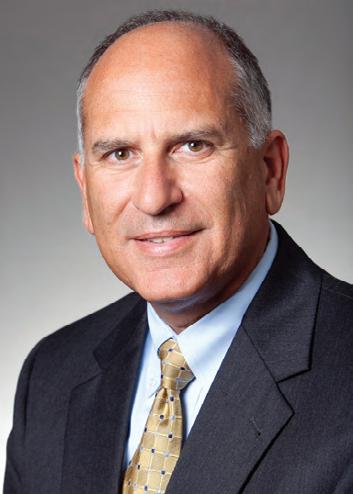
• Delaware Young Professionals Network (which I wrote about in my previous Chairman’s message).
Involvement on any committee is open to any member organization, and it’s free. I see it as an invaluable member benefit and a two-way relationship between the member organization and the State Chamber. These committees serve as a vital resource to the Chamber as the organization reacts and responds to proposed legislation and policies. They also exist as a platform for the business community to stay up to date on bill introductions and amendments as they happen in real time.
You become part of the process.
In my role, I’ve seen our committees at work. They connect people, interpret proposals, offer solutions, and educate
others on the impacts. Our committees help us come up with better, smart answers to many of the questions being asked of the business community today.
Recently, our committees have earned a few feathers in their caps, too. For example, the Employer Advocacy Committee has been working closely with the Delaware Department of Labor’s Paid Family and Medical Leave (PFML) implementation manager to provide feedback and suggestions on how the program could be set up in a way that will be simple and smooth for both employers and employees. Our members suggested eliminating double entry of information by creating a “one stop” system when it comes to implementing not only PFML but also Delaware EARNS—a state-run voluntary employee IRA savings program. The State is now working to build a system where information is inputted once for PFML, EARNS, unemployment insurance, and workers compensation.
On behalf of the Delaware State Chamber, I want to thank our nearly 300 committee members for their work to further impact the decisions being made by the state’s elected leaders and policymakers that affect Delaware’s business community. I look forward to continuing to work with you to come up with solutions that not only benefit more businesses in Delaware but provide a greater return on our investment in our state.
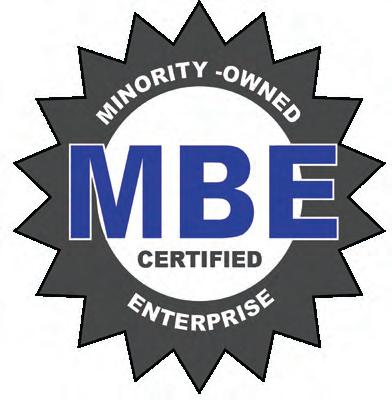
››“Business isn’t about making money—it’s about making friends.” For James Reese Sr., founder of Reese Professional Cleaning Service, building meaningful relationships with clients has always been the foundation of his brand. Today, James Reese Jr. continues to lead with his father’s mindset through professional cleaning services that help businesses while giving back to their communities.
James Reese Sr. started his first cleaning business, Paoli House and Window Cleaning, in 1944 with an eighth-grade education. He relocated twelve years later and started his business over, serving a variety of high-profile clients in New York City. When he came back to the Philadelphia area, he passed the business over to his son in 1982. Reese Professional Cleaning Service now provides a wide array of cleaning options—from office to post construction and everything in between.
James Reese Jr. credits his father’s philosophies for shaping the business into the brand it is today. “Common sense is the most important skill in business,” Reese states. “Do the right thing, every single time. Do the job right the first time. Be honorable and respectful. Everything else will fall into place.”
Reese’s business has always focused on standing out in the industry. When James Reese Jr. first took over, he and his father analyzed the competition to find what they were missing out on.
They became the only local cleaning business with a live person instead of an answering machine and quickly offered same-day service. Providing these differences helped them land bigger contracts and opened doors to new services, like janitorial and post construction cleaning.
During the pandemic, Reese combined a variety of biodegradable cleaning products to create what he calls the R.O.C., which stands for Reese Organic Cleaner. It functions as a powerful cleaning solution that eliminates even the toughest stains.
This created a unique edge as their products were both biodegradable and effective at eliminating COVID19. Despite the challenges of the pandemic, Reese did not lose any clients and instead explored new creative opportunities to help the brands he had been serving for years.
To continuously give back to communities in which they serve, Reese created the Recovery to Work Program. It serves to provide jobs to convicted felons living in halfway houses. “People said not to take a chance on them,” Reese states. “But if you never trust a person, how will you know what they’re going to do? These guys always appreciate that we’ve provided them with a real opportunity.”

“This is our first time coming into Delaware,” Reese reflects. “While exploring local businesses, we quickly realized how friendly people are. Attending the State Chamber events, it’s unique that you’re able to walk up and just start talking to others and network effectively. Delaware’s atmosphere matches our values and we’re thrilled to become part of its business community.”
Reese Professional Cleaning Service provides cleaning for schools, daycares, offices, religious institutions, industrial environments, and post construction sites while offering same day service and their own biodegradable solutions. Learn more at reesecleaningservice.com.
www.abreezainternational.com
(302) 520-2529
1521 Concord Pike, Suite 301
Wilmington, DE 19803
ABREEZA INTERNATIONAL provides renewable energy products like EV charger and solar energy systems.
BING’S BAKERY
www.bingsbakery.com
(302) 438-7310
253 E. Main St.
Newark, DE 19711
Bing’s Bakery is Delaware’s longest running bakery and has been proudly serving customers since 1871. They are a full retail bakery that offers desserts and cakes for all occasions.
DIAMOND STATE HOME LOANS
www.dshomeloans.com
(302) 547-2131
200 Continental Dr., Suite 401
Newark, DE 19713
Diamond State Home Loans puts humanity back into home financing. They help clients assess their goals and learn how to utilize a variety of loan product choices to achieve success whether it be to refinance their current home or become a first-time homeowner.
ESPO ENTERPRISES, LLC
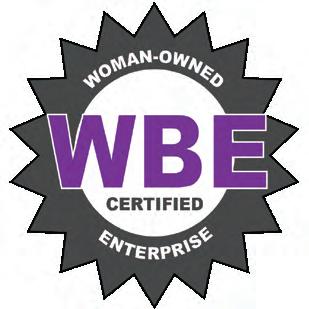
(302) 218-1423
Espo Enterprises is a private consultancy specializing in water resources management issues, government affairs, nonprofit representation, fundraising, and public and private advocacy.
REVIEW BOARD
www.gear.delaware.gov
(302) 577-8602
820 N. French St., 8th Fl.
Wilmington, DE 19801
The Government Efficiency and Accountability Review Board (GEAR) develops recommendations for increasing the efficiency and effectiveness of state government. GEAR is driving the broad adoption of standard strategic planning processes, the use of metrics to guide resource allocation decisions, and the implementation of a culture of continuous process improvement.
www.gov-marketplace. com
(302) 297-9694
92 Reads Way, Suite 206
New Castle, DE 19720
LLC
Government Marketplace’s advisory consultants provide clients with proactive marketing strategies that work to penetrate the government marketplace and ultimately increase company revenue by connecting them with the world’s largest purchaser of products and services—the United States government.
INTEGRATED SOURCING, LLC

(609) 980-0364
1 Market St., #350
Camden, NJ 08101
Integrated Sourcing offers energy infrastructure products and services, including lighting solutions, power quality, energy storage, and renewable power.
MARNIE CUSTOM HOMES
www.marniehomes.com
(302) 616-2664
33298 Coastal Hwy., Suite 3
Bethany Beach, DE 19930
Marnie Custom Homes is an award-winning custom home design and build firm based in Bethany Beach, DE. Owner Marnie Oursler was recently named the 2022 Custom Home Builder of the Year by the National Association of Home Builders.
MILFORD POST 3,
AMERICAN LEGION, INC.
(302) 632-5460
664 N. DuPont Blvd.
Milford, DE 19963
Milford Post 3, American Legion is a military service organization with a social club.
NEW MARKET GROUP LLC
(302) 656-3780
105 Chandler Ave.
Wilmington, DE 19807
New Market Group provides business consulting services, specializing in child care centers, real estate, and business services organizations.
OPERADELAWARE
www.operade.org
(302) 442-7807
4 S. Poplar St.
Wilmington, DE 19801
As the country’s 11th oldest opera company, OperaDelaware is a professional nonprofit opera company with a reputation for excellence in both opera and arts education. OperaDelaware opens the door to bold, vibrant and creative operatic programming
that enriches the community, transforms audiences, and encourages dialogue.
www.reesecleaningservice.com
(267) 257-0946
1007 N. Market St., Suite G20
Wilmington, DE 19801
Reese Professional Cleaning Service specializes in deep cleaning and disinfecting services in commercial, industrial and school settings. They also offer janitorial equipment rental.
RELAX INN SMYRNA
(302) 357-6770
1648 S. DuPont Blvd.
Smyrna, DE 19977
Relax Inn Smyrna aims to be a clean, comfortable, and quality motel option in Kent County.
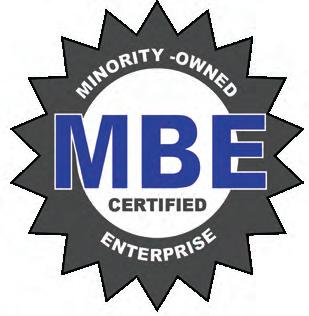
www.smithcapitoladvisors.com

(302) 547-5864
Smith Capitol Advisors offers government relations services to achieve success with legislation, regulation, and issues development.
www.teachersfcu.org
(631) 698-7000
102 Motor Pkwy.
Hauppauge, NY 11788
Teachers Federal Credit Union is committed to guiding their members toward building a strong financial foundation today, for a better tomorrow. What started as a group of Long Island educators has grown into open membership that includes more than 420,000 members from all walks of life, across the nation.
www.visa.com
500 Delaware Ave., Suite 610
Wilmington, DE 19801
As a trusted network, Visa facilitates digital payments across more than 200 countries and territories among a global set of consumers, merchants, financial institutions, businesses, strategic partners, and government entities through innovative technologies.
www.walmart.com
(302) 324-0900
117 Wilton Blvd., New Castle, DE 19720
From their humble beginnings as a small discount retailer in Rogers, Ark., Walmart has opened thousands of stores in the U.S. and expanded internationally. Through innovation, they’re creating a seamless experience to let customers shop anytime and anywhere online and in stores.
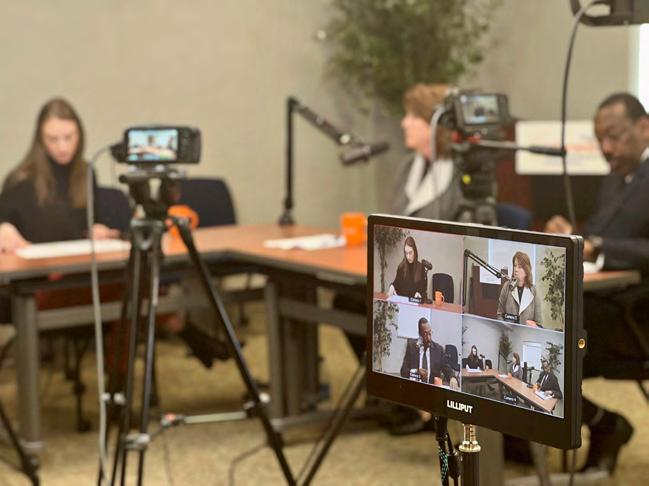
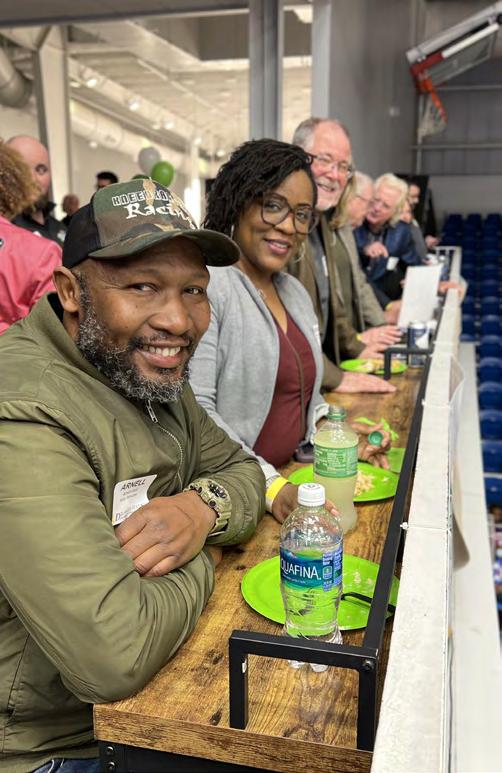
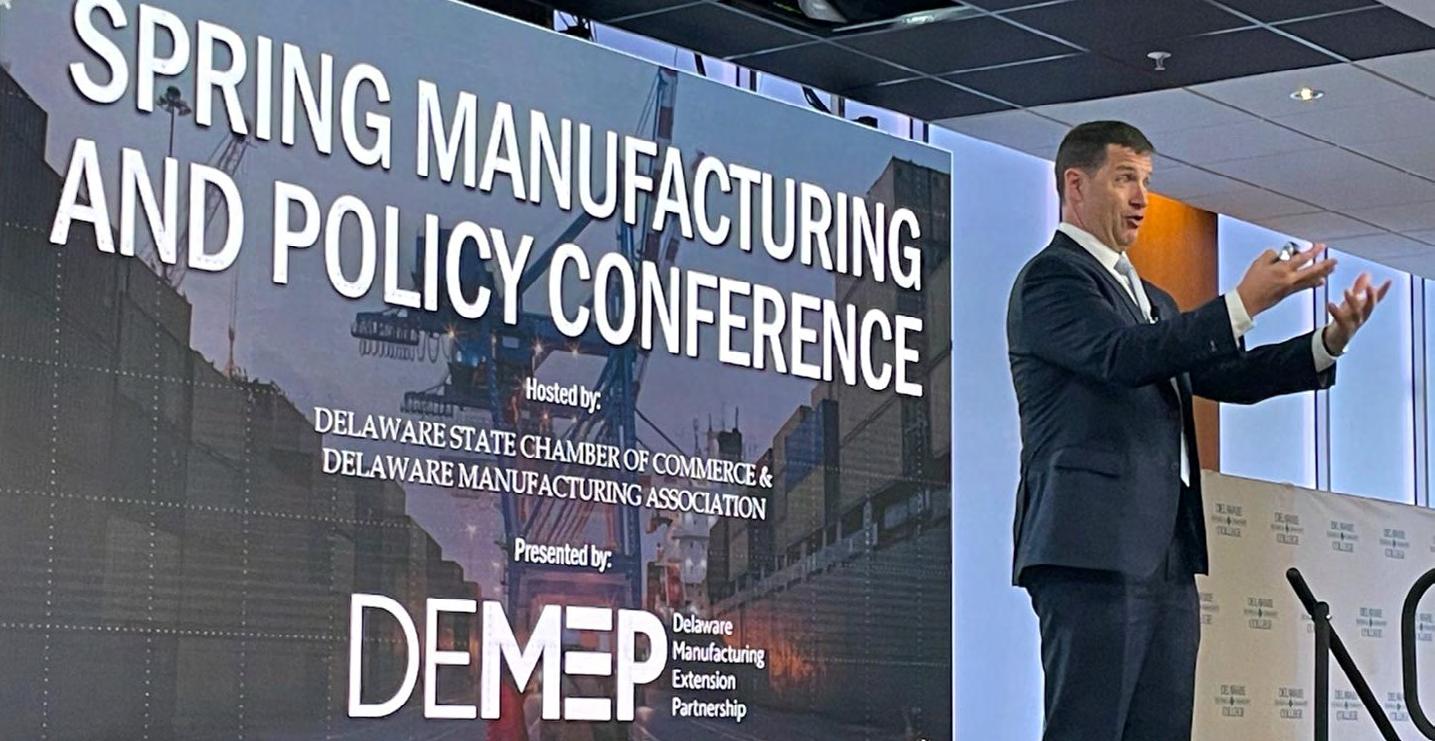
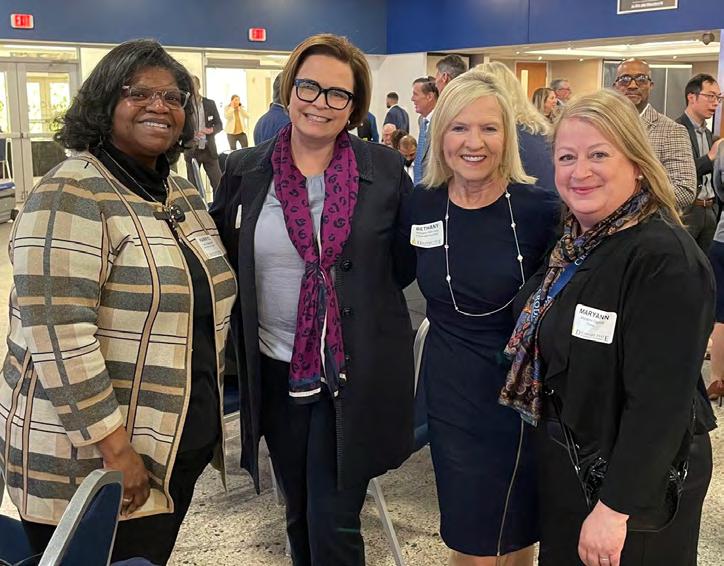
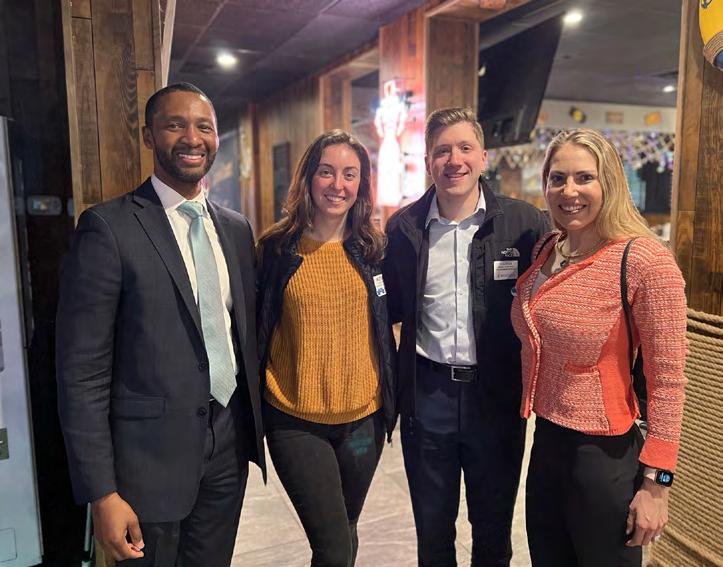
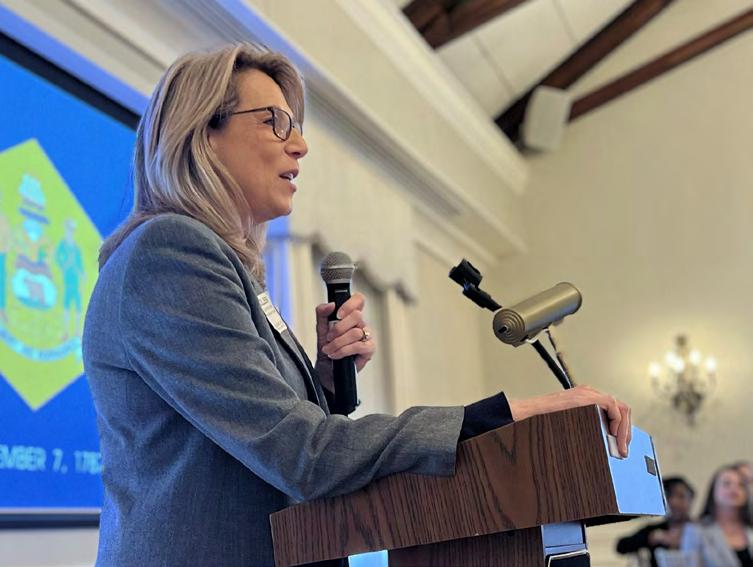
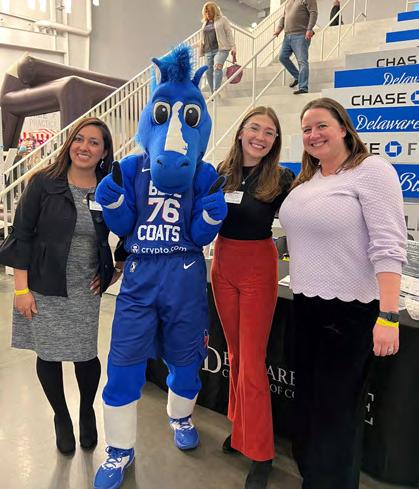

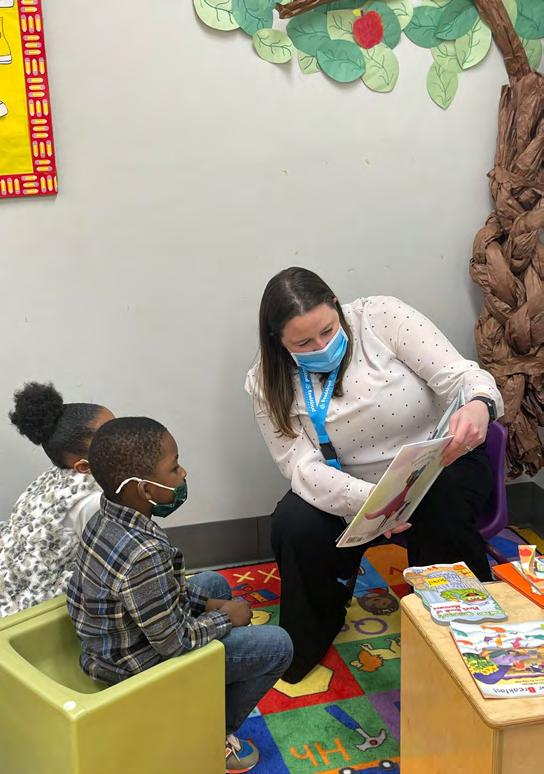



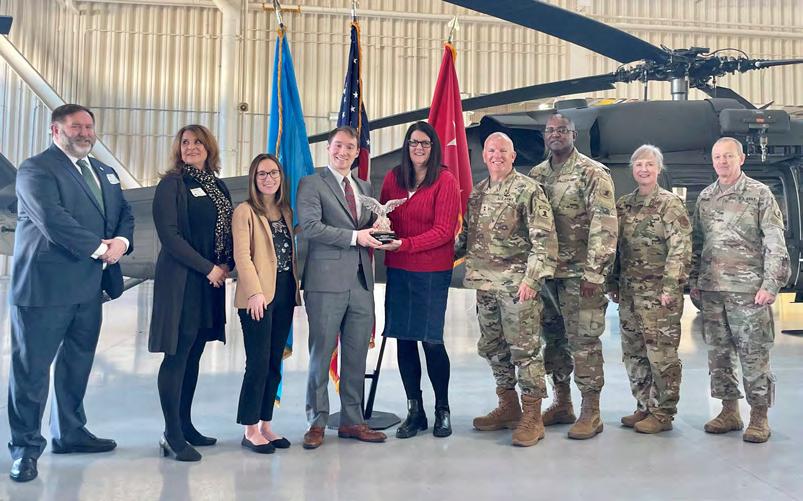
THERE IS NO QUESTION that a healthy economy requires a strong workforce. A skilled and educated workforce draws businesses to Delaware and encourages existing businesses to stay and expand here. Whether college-bound or preparing for a technical or trade job, individuals must be equipped with the knowledge and skills to be successful. Superstars in Education and Training seeks to celebrate innovative programs that contribute to developing the state’s workforce— of today and tomorrow.
Since 1989, the awards program has been recognizing educational programs for innovative and impactful programming. An award is given to one independent training and certificate provider, a higher education program, and a Delaware high school. Awards of Excellence are also granted to deserving companies. This year saw a record number of applicants go through the rigorous application process—five programs came out on top.
The 19 members our selection committee met over the course of three months to choose our honorees. The rigorous process included
reading and grading applications, meeting to discuss the merits of each application, and finally, making site visits for a firsthand look at the finalists in action. Our selection committee returned full of excitement and stories from the site visits.

The 2023 Superstars in Education and Training award winners—all of which exemplify creativity and efficacy in workforce development initiatives—are Jobs for Delaware Graduates, Delaware Technical Community College, and Odyssey Charter School. The Delaware Skills Center and Early College School at Delaware State University were also named as Award of Excellence recipients.
The Delaware State Chamber of Commerce’s 501(c)(3) workforce development affiliate, The Partnership, Inc., works to foster private sector involvement in education and workforce development to ensure the First State has a sustainable pipeline of talent. Delaware Principal for a Day, Superstars in Education and Training, Intern Delaware, and the Delaware Young Professionals Network are its four flagship programs.
The Delaware State Chamber of Commerce and its workforce development affiliate, The Partnership, Inc., are pleased to announce the
Independent Training and Certificate Provider
Jobs for Delaware Graduates, Inc. (JDG) is a school-to-work transitional program dedicated to helping youth reach academic and economic success. The program exposes middle and high school students to emerging careers and higher levels of education and training. Students who participate in JDG receive weekly in-class instruction, credit towards graduation, leadership development, community service, career coaching, and access to internships, job shadowing, and paid work experiences. The JDG model has been replicated in 39 states, leaving a footprint across 1,500 communities nationwide. Their national affiliate, Jobs for America’s Graduates, is a state-based organization dedicated to preventing dropouts among at-risk students.
The Patient Care Assistant Pathway Program at Delaware Technical Community College is a 600-hour, two-year, comprehensive program conducted in partnership with school districts across the state. This certificate-to-associate degree training program consists of classroom instruction, lab practicum, and supervised activities in clinics, long term care facilities, and other health care agencies. Students become Certified Nursing Assistants (CNA) within the first six months of the program, earn a Phlebotomy credential mid-program, and a Patient Care Technician (PCT) credential by the end of year two. Upon program completion, students are also eligible to earn up to 11 college credits towards a degree program at Delaware Tech.
The Food Studies Career and Technical Pathway (CTE) at Odyssey High School is one-of-a-kind in Delaware. The pathway’s goals are for participants to see food as a reflection of society’s values and priorities; to understand the importance of food as a foundation for individual, community, and environmental wellbeing; and to see food as an avenue for empowerment, citizenship, and social justice. The feature experience for the students is working in the Hydroponic Learning Lab, where they are introduced to cutting-edge technology through sustainable urban farming. Since the beginning of the pandemic, Odyssey Charter School has donated more than 7,000 pounds of fresh produce and distributed more than 6,000 meal kits for people in need.
AWARD OF EXCELLENCE RECIPIENTS: DELAWARE SKILLS CENTER
Independent Training and Certificate Provider

EARLY COLLEGE SCHOOL AT DELAWARE STATE UNIVERSITY
Higher Education
Dr. Rob Rescigno, Chair Wilmington University
Zakiyyah Ali Tech Council of Delaware
Jon Bell Better Business Bureau Serving Delaware
Chonnie Blair Chinwe Solutions
Kelly DeCurtis Pepco Holdings Company
Sarah Diehm Goldey-Beacom College
Jenna DiEleuterio Talley Middle School
Christine Eisenhauer Relay Graduate School of Education
Dan Freeman Horn Entrepreneurship at University of Delaware
Hon. Karryl Hubbard Delaware Secretary of Labor
Jessica Jordan The Carlin Collaborative
Kendall Massett
Delaware Charter Schools Network
Anna McDermott Food Bank of Delaware
Barbara Scarborough Bank of America
Dr. Cora Scott
Department of Education
Dr. Patricia H. Smith Holmes Smith Consulting Services, Inc.
Joanna Staib
Delaware Workforce Development Board
Tamara Stoner
Delaware State University
Carolyn Zogby
Ursuline Academy, retired
RECOGNIZING
THANK YOU TO OUR GENEROUS SPONSORS:


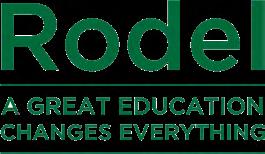

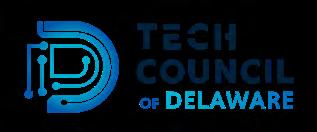




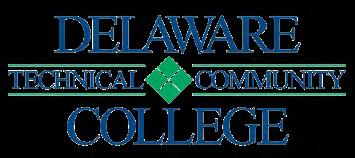
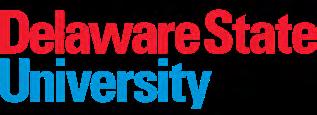








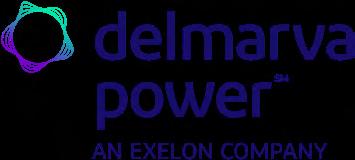




Leadership:
Gold:
Silver:

Bronze:
Patron:



Friend: *As of 4/5/2023


 BY BY REGINA DONATO
BY BY REGINA DONATO
EARTH’S POPULATION IS EXPECTED to surpass 9 billion people by 2050. This means agriculturally, 59-98% more food needs to be produced to meet the demand. Increasing technology to ensure that food production can be more efficient and innovative is not just a want, but a need. Controlled Environment Agriculture (CEA), especially vertical farming, is one solution that can be utilized to feed increasing populations in an efficient way, both in Delaware and beyond.
In 2019, Melissa Tracy, an agriscience and social studies teacher at Odyssey Charter School, took her awareness of this need and made a firstof-its-kind leap for a Delaware school—offer a Food Studies Career and Technical Pathway (CTE) to students. The pathway has several objectives for students:
• To develop a broad understanding of the food and agricultural industry in Delaware.
• To prepare for a wide range of careers in advocacy, policy, technology, agriculture, public health, sustainability, food systems, nutrition, public relations, and culinary arts.
• To study innovative coursework that of social, personal, ethical, environmental, and global significance.
• To earn community ser vice hours by volunteering.
The program consists of several classroom courses: Food Studies: Culture and Environment and Food Studies: History and Power, plus the opportunity to gain hands-on experience in the Hydroponic Learning Lab. “We take a multi-faceted approach by exposure to writing about food, agriculture, and environmental sustainability; cooking labs that help students learn the preparation and tasting of food; and interactions with industry experts through field trips to local businesses, institutions, and farms,” said Tracy.
In the 2023-2024 academic school year, the program will expand to include several additional pathway courses, including a work-based learning internship; new courses called Principles of Agricultural Science-Plants and Food Studies: Future of Food; and a combined six credit Delaware Technical Community College course—Principles of Plant Growth and Hydroponics Production. Students who will complete all six courses in the pathway can potentially earn nine college credits from Delaware Tech.
Outside of the traditional classroom setting, the Hydroponic Learning Lab—a renovated 800 square-foot classroom—is used by students to apply the methods they have learned in the classroom by growing a variety of vegetables hydroponically. This student-run lab can grow leafy greens, microgreens, tomatoes, capsicums, herbs, and cucumbers.

“Because of its ability to produce exponentially higher yields while using no soil and very little land, vertical farming can help food supply chains become more localized. It is estimated that vertically grown crops utilize 90% less water and 10% of the total land use than field grown crops,” explained Tracy. “These systems can also be placed in urban areas not suitable for traditional agriculture, bringing food production closer to consumers and making use of already existing space.”
Odyssey Charter School students harvest and donate at least 3,000 pounds of produce to the surrounding community via food kitchens and food banks each year. Additionally, students create “culturally relevant”
food kits featuring their hydroponically grown produce to donate to communities in need. The meal kit is an easy one-pot recipe and cooking demo that includes all the ingredients to cook a healthy dinner, while considering cultural and dietary food restrictions. Seven thousand meal kits have been donated by the school since 2019.
The pathway has been a huge success within the school so far. Since its inception, 300 students have taken at least one course in the pathway. Annually, the program houses at least 150 students in ninth to twelfth grade, or approximately one-third of the school’s total population.
“I joined this club last year and it was probably the best time I’ve spent doing volunteer work,” shared a participating student. “Every day that I worked in the lab or the garden, I knew I was making a personal impact on my community—the people I see in Wilmington struggling to get by every day.”
The Food Studies Pathway helps feed the broader community, encourages behaviors that have a positive environmental impact, and helps foster the future workforce of one of Delaware’s largest industries. For all of this, the program is a 2023 Superstars in Education & Training winner. “Being a recipient of the Superstars in Education Award is a wonderful honor for the Odyssey Charter School Community,” said Tracy. “We are incredibly proud to be recognized for our innovative and interdisciplinary Food Studies Pathway. We hope to serve as a model for other schools in Delaware.” n
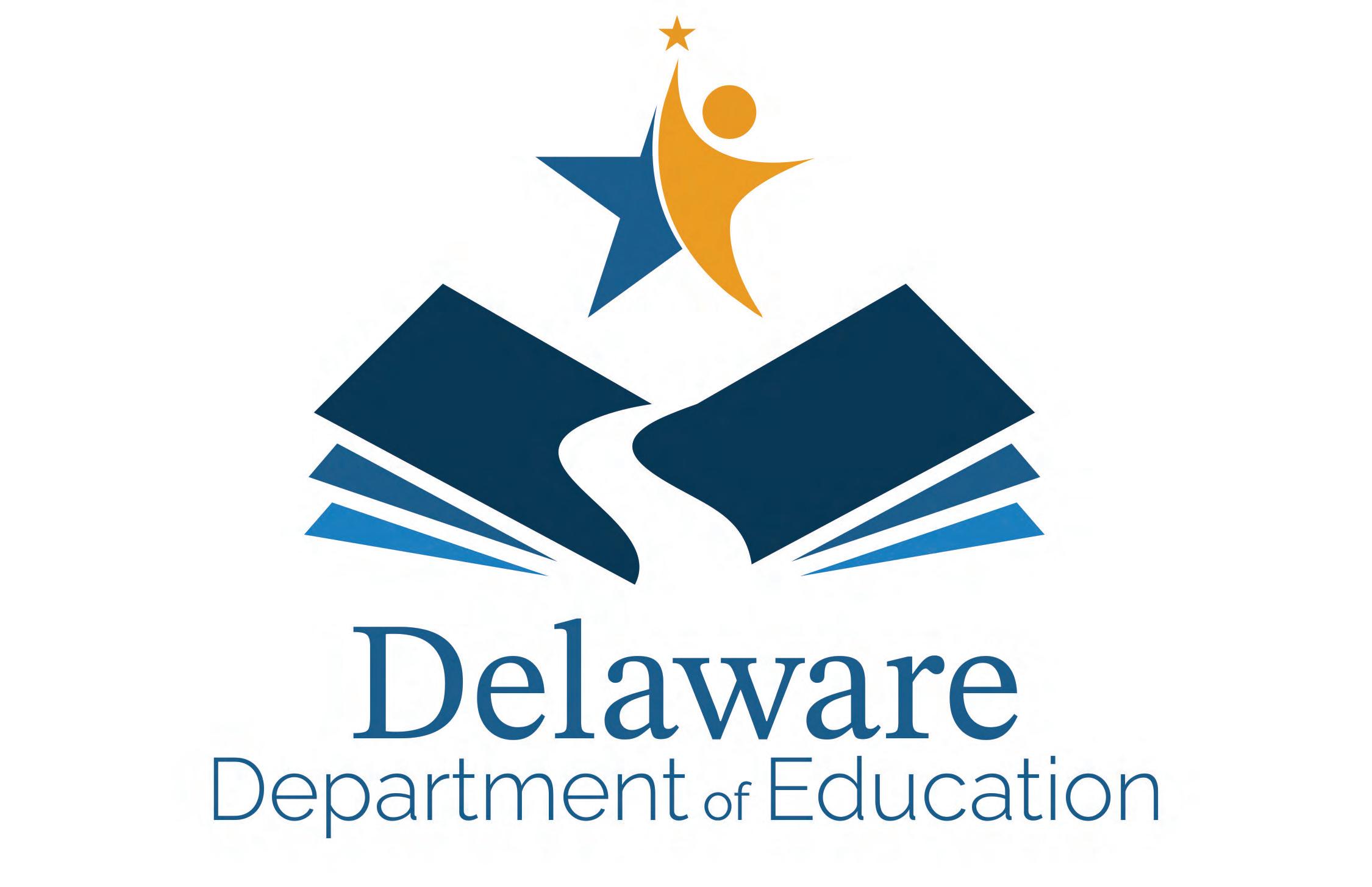

 BY KELLY BASILE
BY KELLY BASILE
EDUCATE. EMPOWER. EMPLOY. Three words. Together, those three words are the difference between where the students of the Jobs for Delaware Graduates program are today and who they will choose to become tomorrow.
As a school-to-work transitional program, Jobs for Delaware Graduates (JDG)’s mission is to enable middle and high school students to achieve academic, career, personal, and social success—however that may look to the student. College may not always be the path for a child; instead, it could be straight from high school to a career. JDG prepares students for
either path by providing the skills needed to succeed in school, at work, and in life.
“Jobs for Delaware Graduates is the best-kept hidden gem in the state,” said President Nicole Poore. “We see more than 4,000 students come through the program each year, and it’s our vision and responsibility to ensure they build the foundation to have the confidence, social skills, and ability to make a life for themselves.”
Going back to the program’s origins in 1978, then-Governor Pete du Pont declared the state of Delaware bankrupt. In addition to the lack of
state funds and the subsequent halt on spending, unemployment and school dropout rates were high at the time. Yet Governor du Pont so clearly saw that support in preparing the state’s kids for the workforce could not stop. So together, public and private sector leaders put their heads together and developed the Jobs for Delaware Graduates model.
“The vision that our governor had 45 years ago to prepare the next generation was spot on,” said Poore. “The innovation that created Jobs for Delaware Graduates back then has since inspired this model to be replicated in 39 states.”
The success and impact of the JDG model over the years can be seen in the numbers. Having led to the creation of their national affiliate—Jobs for America’s Graduates—the JDG model now has a footprint in 1,500 communities nationwide and helped nearly 1.5 million young people stay in school through graduation, pursue post-secondary education, and secure quality jobs leading to career advancement opportunities.

In Delaware alone, more than 97,600 young people have participated in JDG programs, and more than 250 employers have relied on the organization to produce enthusiastic, well-prepared, and effective employees.
“One of the many wonderful things about the hospitality industry is that there is no barrier to entry. Anyone willing to work hard can flourish and advance—regardless of background, past experience, or education level,” Michael Dickinson, president of SoDel Concepts. “We are lucky to have employed many talented young people who discovered a passion for the hospitality industry through Jobs for Delaware Graduates.”
Today JDG is an approved Delaware Department of Education career pathway that is housed in 14 middle and 23 high schools throughout the state. The program implements a comprehensive curriculum based on 80 employability areas, including critical thinking, customer service, entrepreneurship, conflict resolution, problem solving, effective
The success and impact of the JDG model over the years can be seen in the numbers. Having led to the creation of their national affiliate—Jobs for America’s Graduates—the JDG model now has a footprint in 1,500 communities nationwide and helped nearly 1.5 million young people stay in school through graduation, pursue post-secondary education, and secure quality jobs leading to career advancement opportunities.
communication and collaboration, and financial literacy. Students who participate in JDG receive weekly in-class instruction, credit towards graduation, leadership development, community service, career coaching, and access to internships, job shadowing, and paid work experiences.
To ensure students with the greatest need are helped, the program works with guidance counselors and school administrators to identify students who may be in need and/or demonstrate a case for increased support. JDG acts as an early-detection mechanism that pinpoints challenges and presents solutions that help students navigate their unique circumstances and acquire skills that are critical to breaking the cycle of poverty and unemployment.
To give JDG participants a voice, the organization created JDG Speaking Up, where students can share their feelings on national and local issues in society, what they think is missing, and goals they hope to accomplish coming out of the program.
“Education cannot be stagnant,” emphasized Poore. “JDG has evolved over the years based on the climate, workforce needs, and education system.”
She cited one program created in partnership with ChristianaCare— Creating Opportunities with Real Experiences (CORE)—where JDG students learned first-hand how a hospital runs. Students get the opportunity to experience diverse management styles, spend time in
different areas of the hospital, and learn how it all fits together to make the organization run.
Another program created during the pandemic with Discover allowed for students to be paid while learning financial literacy and what it’s like to work for the financial institution.

“Jobs for Delaware Graduates provided the venue and support we needed to develop an internship program for high school seniors that offered students valuable work experience while giving Discover access to a successful talent pipeline post-graduation,” said Discover Department Manager Michael Williams.
These real-life experiences teach the students about work ethics and accountability and peak their interest in career pathways. These sort of exposures can also help students realize what careers they might not want to pursue.
“We have to stop telling kids who they should be. Instead, we need to meet them where they are so we can help them get to their next place in life,” stressed Poore. “Who they are now isn’t who they will be years from now. It’s important to us that they know it’s okay to change and evolve.”
Poore reflected on the work her team does: “We are blessed to work with some of the most amazing kids. The fundamentals were are giving these students is allowing them to be whoever they chose to.” n

IF THERE IS ANYTHING the last few years has taught us, it is the importance of good health care workers. Delaware hospitals, doctors’ offices, and long-term care facilities are constantly seeking people to fill jobs to meet increased demand. This problem existed long before the pandemic and will continue to affect the state in the years following. Local hospital systems approached Delaware Technical Community College about the problems they were facing, and the Patient Care Assistant High School Pathway Program was created in response.
“This pathway is a 600-hour, two-year, comprehensive program approved by the Delaware Department of Education and conducted in partnership with school districts across the state,” said Dr. Paul T. Morris Jr., associate vice president for workforce development and community
education at Delaware Tech. “This certificate-to-associate-degree-level training program progresses from simple to complex and consists of classroom instruction, lab practicum, and supervised activities in clinics, long-term care facilities, and other health care agencies.”
In this program, students are provided transportation from their given high schools to one of three Delaware Technical Community College campuses several times a week. While on campus, the students can access relevant and modern lab equipment that is meant to replicate a real-life medical setting. According to Morris, clinical medical training is also included in the program. “Classroom theory and hands-on clinical components include nursing care, phlebotomy, cardiac function, nutrition, therapeutic communication, psychology, respiratory services, rehabilitation

services, EKG readings, and empathetic care to the client, family, and community,” he said. Grants allow for the program to come at no cost to the student.
Within the first six months, students become Certified Nursing Assistants (CNA), earn a phlebotomy (the ability to draw blood) credential mid-program, and a Patient Care Technician (PCT) credential by the end of year two. Upon program completion, students are also eligible to earn up to 11 college credits toward a degree program at Delaware Tech— almost a full semester’s worth of credits before they even graduate high school. Since the pathway’s inception in 2019, 165 students have earned at least three credits toward their college degree.
“This program creates a unique opportunity for students to stack credentials,” Morris said. “This helps by increasing opportunities for them to make a sustainable wage as they develop their health care careers, either through upskilling in a current position or stacking certifications to progress into a new career field after graduation.”
Additionally, the program provided help to the Delaware community when it was needed most. Participants helped by filling workforce gaps in the medical field during the COVID-19 pandemic. Twenty-five students were prepared to enter long-term care facilities as nursing assistants because

they had the first year of training already completed. They ensured long-term facilities could stay open and accommodate the staff vacancies, increased levels of sickness, and demand of their patients during this era of crisis.
Proof of the program’s success and impact can be seen in the numbers—participating school districts has increased from three to five, and the number of participating schools has increased from three to seven. Enrollments have also nearly tripled since its inception. “The comprehensive approach we use enables students to achieve academically, personally, and professionally,” said Morris. “We attribute the success of the program to the overall collaborative effort of the partners associated with the program, including, but not limited to, the schools, the school districts, the Delaware Department of Education, and industry partners.”
Delaware Tech’s Patient Care Assistant Pathway program’s dedication toward their students and the future of Delaware’s workforce makes being named a Superstar in Education & Training a deserving accomplishment.
“Delaware Tech is proud to be a leader in the state by providing distinct educational solutions, but also by being a model for partners across the country for high school pathway programs,” Morris said. “Earning this award is an honor and a testament to our outstanding faculty and staff, and the quality of students from our school district partners.” n
“This program creates a unique opportunity for students to stack credentials. This helps by increasing opportunities for them to make a sustainable wage as they develop their health care careers, either through upskilling in a current position or stacking certifications to progress into a new career field after graduation.”




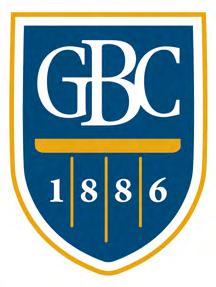



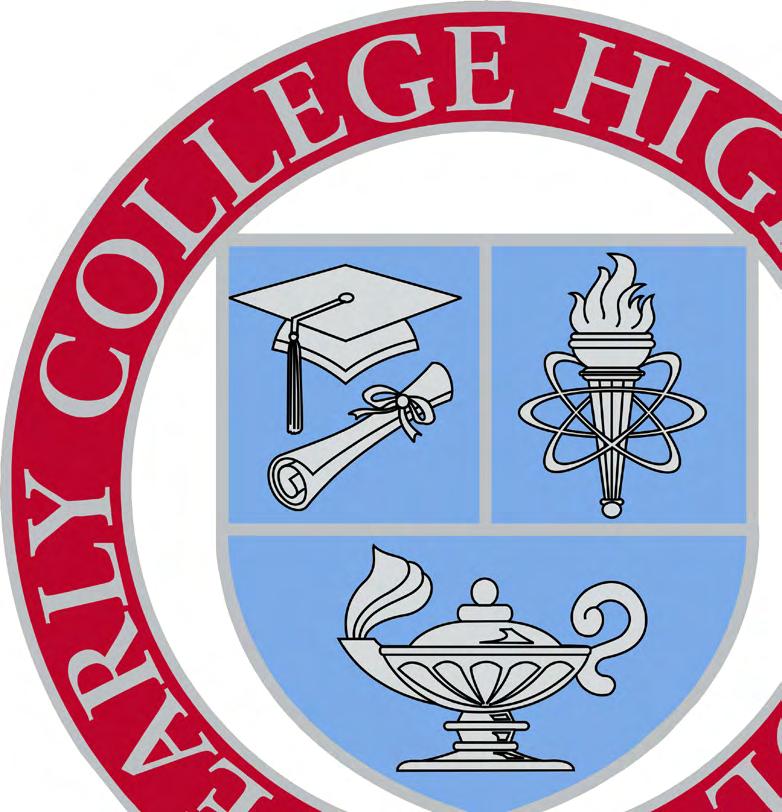
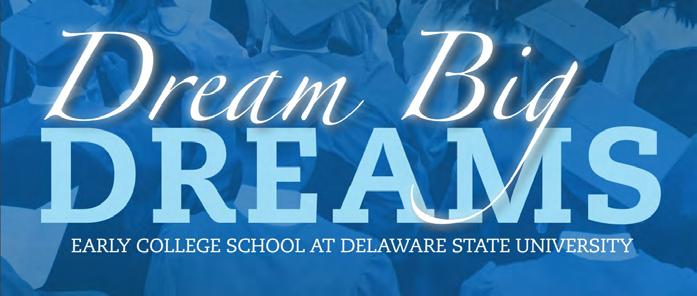


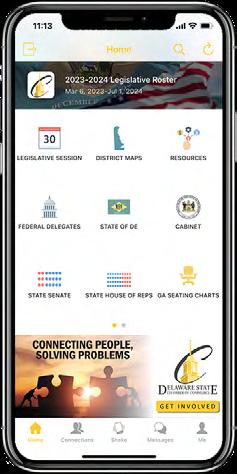


say that Dennis Loftus shaped and changed the face of education in the state of Delaware.
Over the course of his 50-plus-year career, Loftus was a teacher, principal, superintendent, supervisor, mentor, and a friend. He reworked the New Castle County Vocational schools into a model that was copied around the country; mentored more than half the superintendents in the state; helped develop the educational leadership program at the University of Delaware; and worked on committees to create a “worldclass education system” for Delaware.
Yet if you ask him about his career, the word you’ll hear most isn’t ”I”, but “we”.
“He’s a wonderful man,” says Robert Rescigno, assistant vice president of partnerships and community affairs for Wilmington University and a member of the team who chose Loftus for the 2023 John H. Taylor, Jr. Educational Leadership Award. “He never takes credit for himself.”
The John H. Taylor, Jr. Education Leadership Award recognizes leaders within the community who have provided sustained leadership in advancing Delaware education and who, by doing so, has also made our community a better place in which to live and work.
Loftus is extremely honored to receive the award memorializing someone who cared about the community and education as much as Taylor did. Loftus met Taylor when he went to the News Journal to complain about the unflattering editorials being written about his schools. Taylor was the head of the editorial board at the time. Taylor taught Loftus how to tell the story of the schools. They were friends for years.
As nominees were being considered for the award, it became apparent that most of them were products of the Dennis Loftus school of mentoring, says Rescigno, a former high school principal who was himself mentored by Loftus. The committee decided it was time to honor the man who helped lead so many others to success.
One of Loftus’ great strengths was his ability to bring different people together. As superintendent of the New Castle County Vocational Technical (NCCVT) School District, he had an advisory group of more than 300 business and community leaders working together. They’d tell him what skills businesses needed in employees and Loftus would make sure those skills were part of his curriculum.
“People really are willing to help you if they find out how they can,” says Loftus.
Some of those skills added up to big changes in Delaware education.
In the early 1990s, he transformed the NCCVT structure from half-day to full-day, adding rigorous academics on top of vocational training. It led to a shift in how all schools in Delaware looked at education. Rescigno points out that the career pathways programs in high schools today evolved out of Loftus’ vocational school model.
A 1996 New York Times article about Loftus’ vo-tech schools stated he created “the prototype of vocational education of the future.”
His strength was his focus, and that focus was always on how to make education better in order to help more students, says Rescigno.
“I never got the feeling that he was driving anything; that he wanted anything. He was always sincere and always, ‘How can I help?’” says Chad Carmack, a former administrator for the Red Clay School District who was also mentored by Loftus.
Loftus was very close with his staff as well as the students and administrators he mentored. Gene Bottoms, author of Tomorrow’s High School: Creating Student Pathways for Both College and Career and a longtime friend, remembers Loftus coming to conferences with his team of administrators. He challenged them to find somebody doing something better than what they were doing. They were to bring those ideas back to Delaware where Loftus would figure out how to support them in implementation.
His style wasn’t to tell someone what to do, but perhaps help that person come to the correct conclusion on his or her own.
“You don’t have to have any more great ideas,” he used to tell superintendents. “You need to talk to people about your problems and challenges, and listen to them.”
“Workers are happier, more productive, and love coming to work if they have a part in designing a solution rather than being told what to do,” says Loftus. “And when they do that, you’re going to see that difference in the service and the product you provide.”
Loftus loved coming to work every day. At 81, he’s been retired for seven years, but still contributes to state education committees as a volunteer.
“All I did was ask and listen a lot, and a lot of collective energy went together to maybe help a lot of kids and teachers and administrators become better at serving others,” says Loftus on his years of service. “I look at that and I’m not really sure that’s deserving of recognition or award, but it sure was a fun journey.” n




This application form is a simple self-evaluation that can improve your business management skills and put you in the running to win the Marvin S. Gilman Superstars in Business Award!
S Ste p 1 / Self-Evaluation:



If your organization is a business, please use Form A.

If you are a nonprofit, please use Form B.
E Eligibility:
In business for at least three continuous years.
150 employees or fewer.
Previous Award of Excellence recipients and applicants that were not selected for an award may resubmit their same application up to three years back.
Previous Superstars in Business winners may re-apply after five years.
Please answer the questions by completing the application online at www.dscc.com/superstarsinbusiness. Electronic PDFs and paper versions are also available for reference, but your application must be submitted online. Please contact Kerri Welcher at kwelcher@dscc.com or (302) 576-6566 with questions.
S Ste p 2 / Submission:
All applications must be submitted online. Applications must be submitted to the Superstars in Business Selection Committee no later than Thursday, July 13, 2023, at 4:30 p.m. No late entries will be accepted. Please note that materials submitted cannot be returned, but all information remains confidential.
It is important to note that each question has a word count limit. Please follow those word count limits. Applications longer than the outlined limits will not be accepted.
Ste p 3 / Application Review:
Within each category, the finalists may be contacted for additional information or validation of the information submitted. The review made at this step is held in strict confidence.
Ste p 4 / The Awards:
Each winner will be presented with a special award recognizing their superior achievement on November 8, 2023, at a luncheon in the Gold Ballroom of the HOTEL DU PONT in Wilmington. Marketing and recognition will be given to all the Superstars in Business honorees throughout the year.
Awards may be judged in the following categories (Please note that final categories will be decided upon at the Selection Committee’s discretion based on the number of entries and quality of applications ):
• 1-20 employees
• 21-50 employees
• 51-150 employees
• Nonprofit
Below each ques�on, we provided you with ‘Superstar Sugges�ons.’ They aim to help you form more robust answers and provide sugges�ons on what informa�on may make your response more compe��ve. These are not requirements but will help judges compare your organiza�on against other applicants. Please answer ques�ons as concisely as possible.
EN TRY DEADLINE: Ju ly 13, 2023, at 4:30 p.m.
Join us on April 26 at 8:30 am for a workshop on how to best write your application. Register at www.DSCC.com.
Q Ques�ons ? Please contact Kerri Welcher at kwelcher@dscc com or (302) 576-6 566

1. Business name, address, and phone; primary contact and CEO’s name, �tle, phone number and email

2. 450 words: Background informa�on



Describe your business. (Superstar suggestion: Assume the reader has no understanding of your industry.)

List the number of years in business and briefly explain how your business was started.
Number of employees and average tenure (Please distinguish between full-time and part-time).
3. 450 words : Ple ase provide your bus iness miss ion statement and/or business philosophy including core competencies and strengths How do you align your day-to-day operations to this statement/philos ophy?
Superstar suggestion: Provide your mission statement, vision statement, guiding principles, or strategies for success. How is your mission statement communicated to your clients, employees, investors, and/or the general public (i.e., word of mouth, through marke�ng materials, etc.)? Also, explain how they were developed – were they customer or leadership driven, and how do you ensure they are understood by your en�re company? Tell us here if you have team building mee �ngs, strategy sessions, and/or safety mee�ngs that may include a regular discussion on these important guiding statements.
4 4 50 words: What are your key metrics and tools and how are you measuring your results? How do you us e thes e to proactively measure your pe rformance and guarantee future success?
Superstar suggestion : Here is the place to highlight any strategies and measures taken that resulted in savings, stability, or growth. You should be monitoring outcomes that are a consequence of its operational performance and then serve as predictors of future performance. How do your results measure up to other companies in your industry? Be specific and tell us about innovative tools you use to market or boost sales, which in turn produces a good ROI. Customer loyalty, years of experience, low associate turnover and industry awards are all competitive weapons. We want to know that your business is sustainable and will be around in the years to come. Actual financial metrics (i.e., revenue growth percentage, profit margin, days cash on hand, debt ratio, etc.) could separate your application from the competition. *Remain assured that all information is kept confidential.
5 450 words : When thinking about your customers, what makes your business stand apart from your peers and/or similar businesses?
Superstar suggestion: Use this question to outline how you identify customer needs and priorities. Tell us if you are measuring customer satisfaction or if you have moved to customer loyalty or customer advocacy. How do you engage your customers? Share with us how you brand your company and how you maintain it (i.e., social media, online networking, marketing campaigns). Tell us if you have a customer database or process to retain information about customers to use in the future. If you have a formal process for tracking and resolving complaints, highlight your program here and brag about your results. What makes your business a Superstar?
6. 450 words : A qualified workforce is a main concern for all businesses. How do you recruit and retain your as sociates?
Superstar suggestion: What are your key workforce practices and how are they directed towards creating and maintaining a highperformance work environment? How do you determine and meet the needs of your employees? If associate training or education reimbursement programs are a big part of your employee retention program or your quality/safety programs, please tell us about that too. Specific examples are appreciated.
7 450 words : What recent or current significant challenges other than Covid-19 have you had to overcome to continue to be a success ful bus iness? Identify and describe the steps you took.
Superstar suggestion: How were the challenges identified, and did you anticipate them coming? If they couldn’t be predicted, what did you learn for the next time to make the company stronger? For these opportunities, financial or otherwise, how did the leaders of the organization rally and engage associates to adapt to change and meet the challenge? List challenges within the past two years.
8 450 words : Discuss the nature and involvement of your community service efforts from leadership to employees
Superstar suggestion: We want to know what organizations your company chooses to align with and why. How in-depth is your involvement? How does your owner/leadership’s commitment and involvement influence the corporate culture as it relates to community service efforts? Describe investments of time, as well as causes supported financially. Highlight efforts regarding care for our environment, care for underserved communities, and/or social equality. Do you have a formal program that includes fundraising or service hours donated? Are the commitments or passions you have for certain causes conveyed in your marketing, company brand, and culture?
1. Bus iness name, addres s, and phone; primary contact and exe cutive director’s name, title, phone number and email


2 450 words : Background information:



• Describe the work of your nonprofit. ( Superstar suggestion: Assume the reader has no understanding of your industry)
• Number of years serving the community.
• Number of paid staff and average tenure (Please distinguish between full-time and part-time).
• Number of volunteers and their average tenure.
3 450 words : Ple ase provide your organization’s mission statement and/or philosophy, including core competencies and strengths How do you align your day-to-day operations to this statement/philosophy? Also please provide the number of people or groups that benefit from your organization (Please provide results for each of the last three ye ars).
Superstar suggestion: Provide your mission statement, vision statement, guiding principles, or strategies for success. How is your mission statement communicated to your beneficiaries, staff, board, contributors, and/or the general public (i.e., word of mouth, through marketing materials, etc.)? Also, explain how they were developed – were they constituent or leadership driven, and how do you ensure they are understood by your entire organization? Tell us here if you have team-building meetings, strategy sessions, and/or safety meetings that may include a regular discussion on these important guiding statements.
4 450 words : When thinking about your key cons tituents (i e , recipients of service, board members, donors, and/or customers), what makes your organization s tand apart from your peers and/or similar nonprofits?
Superstar suggestion: Please use this question to outline how you identify constituent needs and priorities. Are you measuring their satisfaction? How do you engage your constituents? Share with us how you brand your organization and how you maintain it (i.e., social media, online networking, marketing campaigns, etc.) Tell us if you have a database or process to retain information about your constituents to use in the future. If you have a formal process for tracking and resolving complaints, please highlight your program here and brag about your results.
5 450 words : A qualified workforce and board of directors are main concerns for all nonprofits How do you recruit and retain your staff, board members, and volunteers?
Superstar suggestion: What are your key workforce practices, and how are they directed toward creating and maintaining a highperformance work environment? How do you determine and meet the needs of your staff, board, and volunteers? How often does your board meet, and are there term limits? What is the percentage of board members who make financial contributions to your organization? If associate training or education reimbursement programs are a big part of your employee retention program or your quality/safety programs, please tell us about that too. Specific examples are appreciated.
6 450 words : What recent or current significant challenges other than Covid-19 have you had to overcome to continue to be a success ful nonprofit? Identify and describe the steps you took Superstar suggestion: How were the challenges identified, and did you anticipate them coming? If they couldn’t be predicted, what did you learn for the next time to make the company stronger? For these opportunities, financial or otherwise, how did the leaders of the organization rally and engage associates to adapt to change and meet the challenge? Please list challenges within the past two years.
7 450 words : List your organization’s functional expense allocation as a percentage of total expenses : Program Services ________ Fundraising ____________ Management & General______
8 What is the calculation of your unres tricted ne t assets to current operating e xpenses? How many months of cash do you have on hand?
9 450 words : Ple ase use the space below to provide a narrative that will help the selection committee understand the strength of your nonprofit’s financial position.
Superstar suggestion: A well-run nonprofit should meet standards where at least 65% of its total expenses are on program activities. Please explain if your organization’s ratio is below that. Also, a well-run nonprofit should avoid accumulating funds that could be used for current program activities. To meet this standard, the organization’s unrestricted net assets should be no more than 3x the size of the past year’s expenses or 3x the size of the current year’s budget, whichever is higher. Please explain any variance from this standard. Examples may be that your organization is planning on a large capital project, introducing a new program, or in the midst of a capital campaign, in which the organization is accumulating funds for that expense.
BLOOM ENERGY’S INNOVATIVE FUEL CELL and electrolyzer technology requires a constant pipeline of intelligent individuals with technical, engineering, and other skills to keep the clean energy industry moving forward. Through its internships, Bloom is developing the workforce necessary to grow clean energy, in Delaware and beyond.
Our talent acquisition strategy centers on recruiting candidates from diverse communities, backgrounds, and cultures through increased advertising and outreach. In our 2022 university intern program, that meant increasing the number of women, underrepresented groups, and veterans. By sharing new and open positions with university-affiliated groups such as the Society of Women Engineers, Society of Hispanic Engineers, and the National Society of Black Engineers, our interns were 50% women in engineering roles, 65% from underrepresented groups, and 10% veterans.
In addition, we made a concerted effort to partner with Historically Black Colleges and Universities (HCBUs), Hispanic Institutions (HIS) as well as veteran associations to recruit the best and brightest minds.

In Delaware, Bloom was pleased to partner with Delaware State
University and Howard University to recruit and hire two talented students to support our policy and public affairs team, and other students from University of Delaware to support our core functions at our in Newark assembly facility. In 2022, 15% of Bloom’s total intern hiring was in Delaware, and 12% of Delaware interns were converted to full time.
The company also has developed a special internship program to honor the late General Colin Powell, who served on its board of directors. In partnership with the Colin Powell School at the City College of New York (CCNY), it created the Colin Powell Bloom Energy Innovation Fellows Program. CCNY students can gain extensive professional development through a cohort-based program at Bloom’s San Jose, Calif. headquarters. Powell founded the school in 2013 and led it until its passing in 2021; 75% of its students are first-generation students and 84% are people of color.
In 2023, our intern program will grow by 40% with a continued focus on attracting diverse representation. Tell the intern candidates you know to apply to Bloom today to join our innovative thinkers and doers who never stop striving to improve our technology and build the future of energy. n
 BY CARRIE LEISHMAN
BY CARRIE LEISHMAN
IF YOU ARE LIKE ONE IN THREE AMERICANS, your first job was in the restaurant industry—the nation’s second-largest private-sector employer, according to the National Restaurant Association Educational Foundation (NRAEF). In Delaware, restaurants are the largest private sector employer. The Delaware Restaurant Association (DRA) is leading workforce development initiatives to help support a business sector with over 52,000 Delawareans who work in restaurants.
While restaurant staffing levels remain below pre-pandemic levels, millions of people nationwide are employed in the restaurant and foodservice industry. Employment opportunities for restaurant managers, kitchen managers, and line cooks are projected to grow significantly through 2026, according to the Bureau of Labor Statistics data and industry projections. Delaware remains down over 1,000 industry positions
from pre-pandemic levels but has a need to fill an estimated 5,000 jobs— 10% more than the current available workforce—within the next ten years.
The DRA—largely through the work of its philanthropic foundation, the Delaware Restaurant Foundation (DRF)—is known for its successful support of the state’s ProStart Program, an educational pathway with 3,000 Delaware students studying for careers in culinary and hospitality management in 21 high schools and correctional facilities.
Apprenticeship is a win-win for both the employee and their company. Funded by the U.S. Department of Labor, the NRAEF’s apprenticeship programs provide both new and current restaurant and foodservice employees the opportunity to advance their careers and move into highpaying line cook and management positions. The DRA/DRF has partnered again with the NRAEF, Delaware Department of Labor, and Delaware
Department of Education to provide apprenticeship programs to both youth and adult populations in Delaware.
Restaurant Youth Registered Apprenticeship (RYRA) aims to connect young people (aged 17-24) to the nation’s second-largest private-sector employer—restaurants—through industry apprenticeships like restaurant management and line cook, and complementary services that support growth and achievement. Delaware was one of four states chosen to pilot this restaurant apprenticeship program for youth entering the industry, giving apprentices the opportunity to explore industry pathways while earning federal journeyman papers and additional industry-recognized credentials.
In addition, The Hospitality Sector Registered Apprenticeship (HSRA) program provides both new and current restaurant and foodservice employees the opportunity to advance their careers and move into higher paying management positions. In partnership with employers of all sizes, apprentices participate in a competency-based program involving on-thejob training and traditional classroom work. As each skill and competency
is mastered, apprentices advance in the program until all competencies are documented and completed. Depending on the ability and experience of the apprentice, the program takes approximately two years to complete.

The goal is to attract people into the industry and have them develop the related training instruction, the on-the-job learning, and employability skills necessary for a successful career. With the support of a nationallyrecognized and accredited training, the DRF provides the tools and support to help guide employees to fulfilling careers in the hospitality industry. n
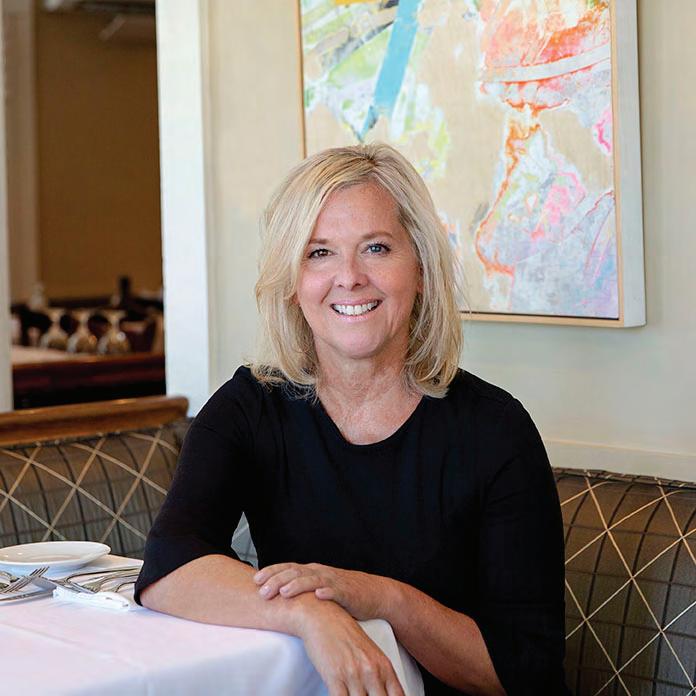
IN AUGUST OF 2021, the Whitney Athletic Center opened its doors at the University of Delaware. This beautiful, state-of-the-art building was built with two purposes: to provide the necessary resources for studentathletes to succeed at the highest level and to offer opportunity to all University of Delaware students to gain practical experience in their degree of study.
Housed within the Whitney Athletic Center is the Blue Hens sport performance team, led by Deputy Athletic Director of Sport Performance and Campus Recreation Dan Watson. Four major areas that make up this team are performance nutrition, sports science and analytics, athletic training, and strength and conditioning.
These areas are critical to the overall success of student-athletes, and have provided avenues of career development for the entire University of Delaware student body. Director of Performance Nutrition Kelly Rossi has fully integrated students into the daily work flow of the performance nutrition team.

“Our student leaders are the driving force behind everything that we do,” Rossi stated. “They help our dietitians with overall efficiency, and have a major impact on the health and performance of the student-athletes, while providing students a high-level educational experience in performance nutrition.”
The students focus on daily nutrition education, management of inventory, fueling, and executing meals between workouts. The performance nutrition team works directly with the Behavioral Health and Nutrition department to help provide opportunities for students with a higher interest in sport nutrition. Many major in nutrition and dietetics and utilize these opportunities to gain hands-on experience.
Department Chairperson Jillian Trabulsi, PhD, RD is an ardent partner in the relationship between the two departments.
“The integration between the Behavioral Health and Nutrition department and performance nutrition team has served as an incredible pathway
to help enhance the academic experience and career opportunities for our students,” said Trabulsi.

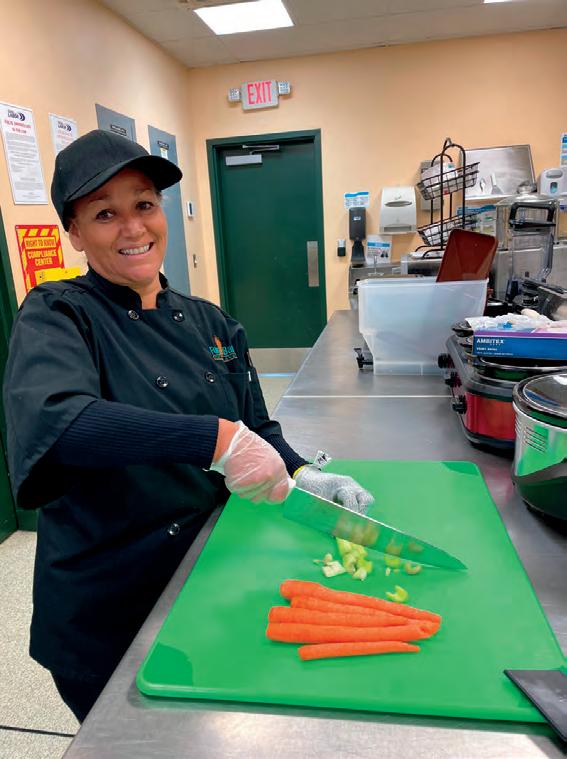


Richard Levy is an assistant athletic director for sport performance, focusing on strength and conditioning. Here, students are involved with all training program implementation. They receive first-hand experience and skill development in annual periodization planning, exercise instruction,
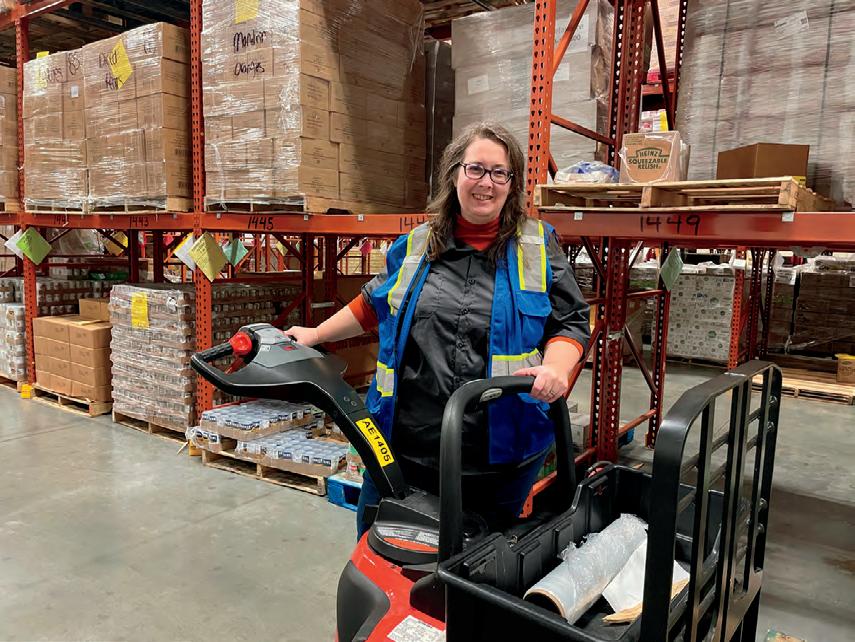
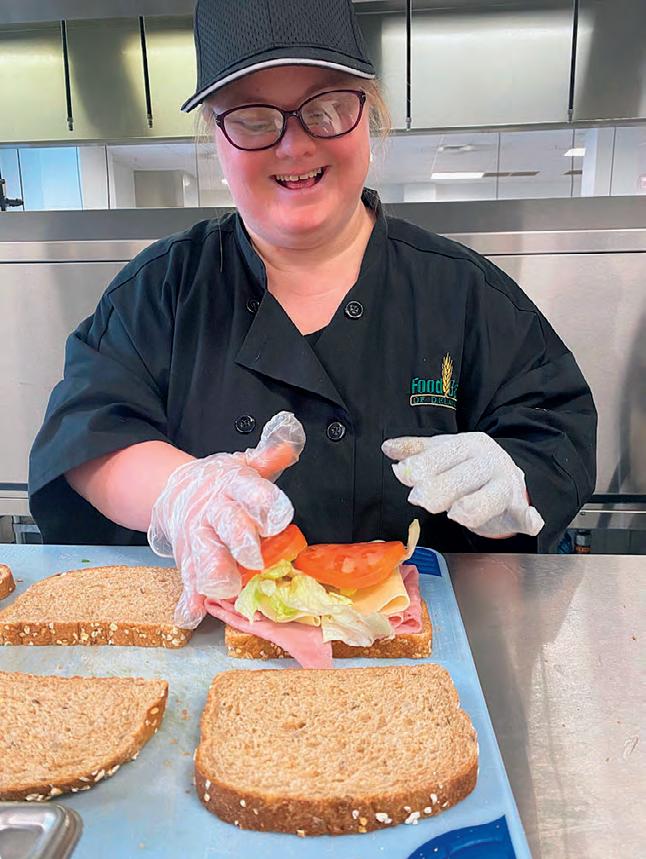

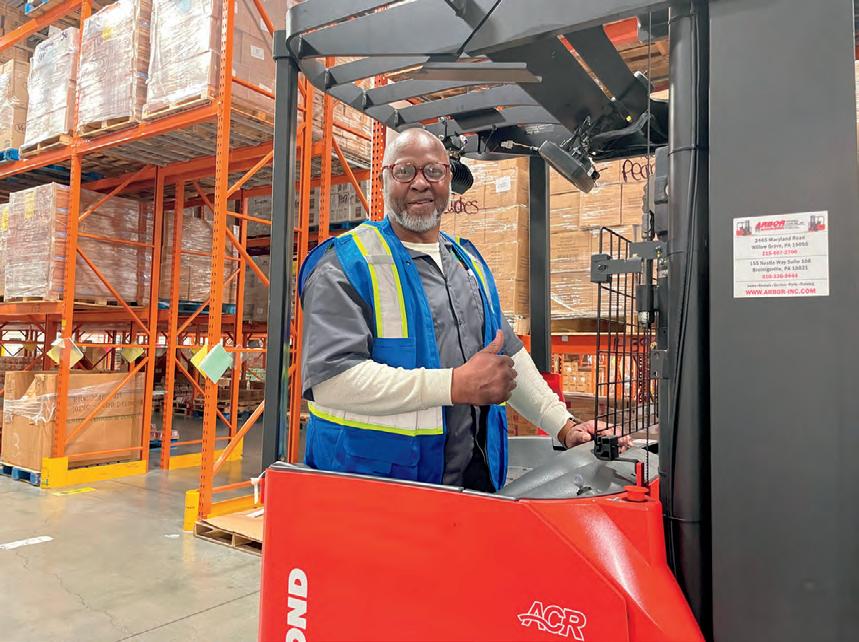

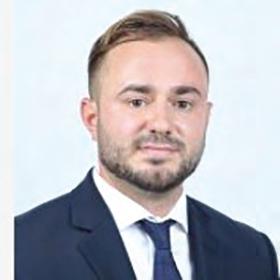
speed and conditioning development, and risk management.


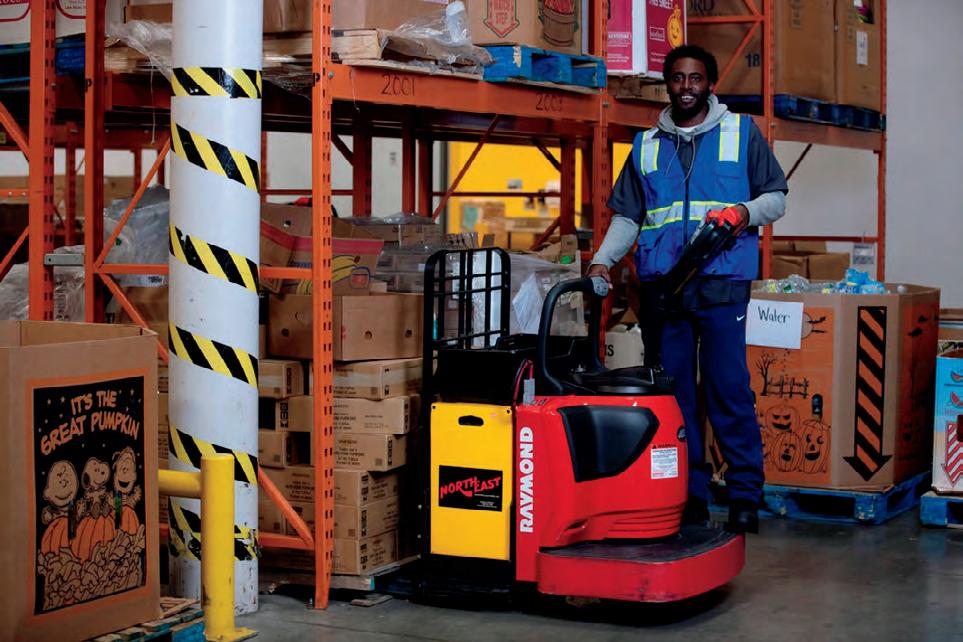
In one of the fastest growing areas of sport performance, Director of Sports Science and Analytics Christina Rasnake mentors over 30 students over the course of an academic year, majoring in areas such as computer science, economics, statistics, and sport management. They learn statistical analysis for sport, performance technology implementation, data management, and data visualization. Students work during practices and games, tracking GPS performance metrics and recording repetitions based on specific positions and tactical plans developed by the coaches and support staff.
“We could not deliver the high level of integrated services to assist our student-athlete performance needs if it weren’t for our talented students,” Watson said. “It’s a win-win-win for sport performance, the academic programs and most importantly, the students.” n
CONTRIBUTED BY THE DELAWARE OFFICE OF WORK-BASED LEARNING
THE GAME OF FINDING qualified job candidates has changed dramatically in recent years, leaving many Delaware employers frustrated and struggling to fill positions in high-demand industries.
NERDiT NOW has figured out how to get ahead of the curve with support from the Delaware Office of Work-Based Learning (DOWBL).
DOWBL helped NERDiT NOW set up a sustained internship program with Delaware Technical Community College. Now, this growing IT organization not only gets extra help during busy times, but they are exposing and cultivating future employees on every part of their full business cycle before they’ve even made a job offer.
NERDiT NOW is a Wilmington tech company with an innovative business model and a compelling mission to close the wealth and income divide by addressing “digital deficiencies” in under-resourced communities. Their business recycles, restores, donates, and sells devices to ensure highquality technology is accessible.
Best of all, the organization is committed to finding, training, and hiring its technicians from the communities it serves. DOWBL helps NERDiT NOW jumpstart this process by matching them with qualified IT interns from Delaware Tech.
“The Delaware Office of Work-Based Learning makes student connec-

tions work,” says Jasmine Morton-Thompson, director of operations at NERDiT Cares. “Because DOWBL gives us people who are actually interested in IT, they can actually do the work. We get extra hands.”




When they come to NERDiT NOW, Delaware Tech students are supported by the organization’s more experienced apprentices who mentor them through every aspect of the tech recycling business—from fixing laptops to shipping orders. And that gives NERDiT NOW plenty of opportunities to evaluate potential employees, excite them about the organization, and train them exactly the way they want. A short time later, these interns become new hires ready to hit the ground running.
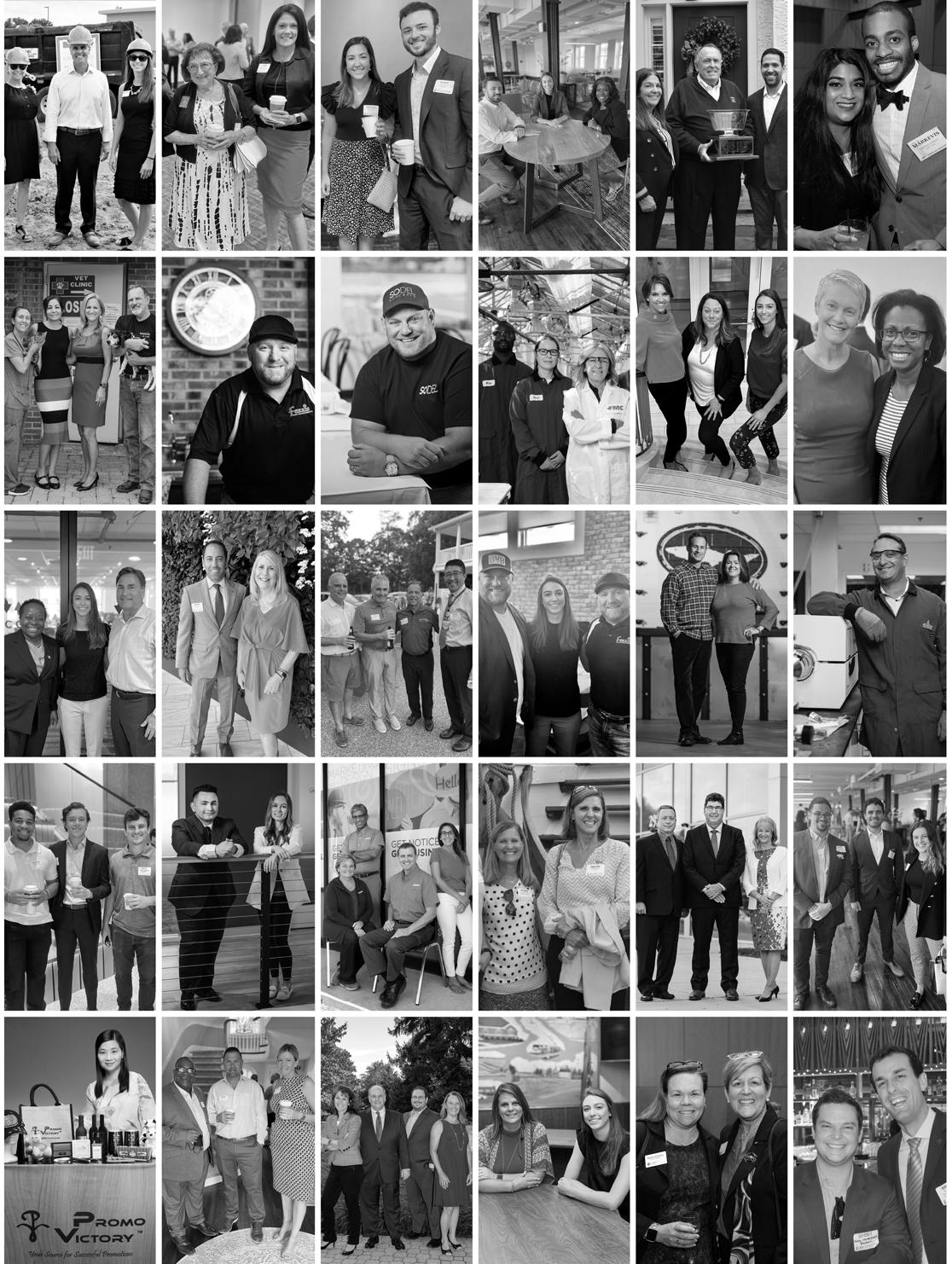
“The way employers recruit and hire staff is changing rapidly,” says Bryan Horsey, director of DOWBL. “Our job at the Office of Work-Based Learning is to help employers keep up by introducing them to future employees months or years ahead of everyone else. Industry introductions, training, engagement, and loyalty is now all happening with students before they graduate. And that’s a win for everyone. Employers are finding and hiring qualified candidates more quickly, and students are entering the Delaware workforce more prepared than ever.”

DOWBL puts employers in front of future candidates as early as eighth grade, when schools are introducing students to various industries through the Delaware Pathways curriculum.
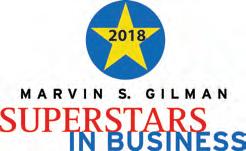
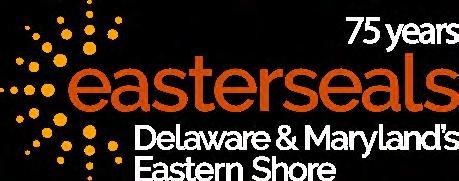

“The lines between high school and college career preparation are blurring,” says Horsey. “More high school students are taking advantage of partner opportunities—like dual enrollment through Delaware Tech—so they’re gaining skills and looking to connect with their future employers much earlier than in years past.” With touchpoints ranging from job shadows and guest speaking opportunities to multi-week internships, DOWBL offers employers like NERDiT NOW an inside track to students well ahead of traditional timelines.
“Our relationship with DOWBL is sustainable,” says MortonThompson. “We get extra hands and potential employees. It’s one of the best relationships we have.” n
Employers can learn more about how to use work-based learning, including qualified internships, to boost their recruitment efforts by contacting DOWBL and learning more at deowbl.org.






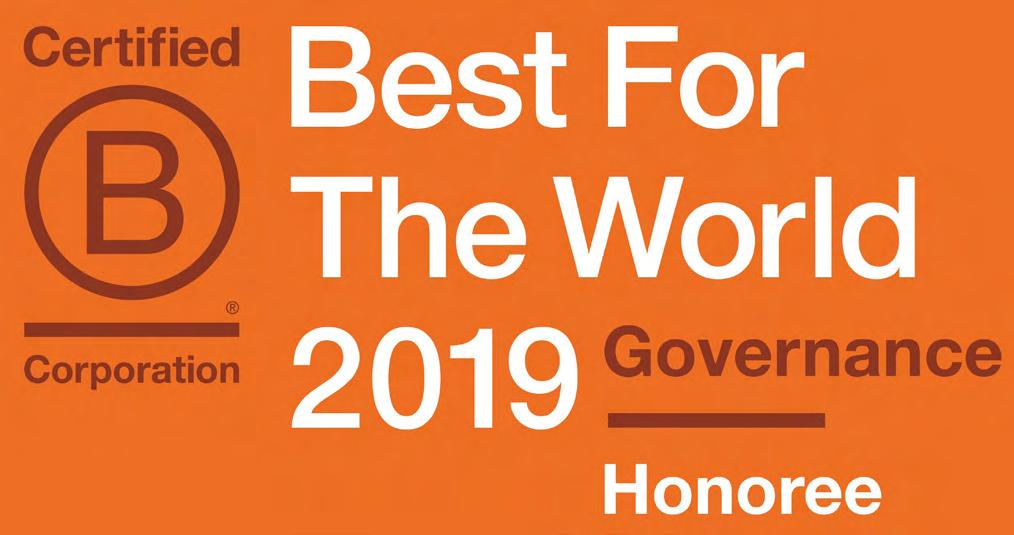
Potter Anderson is a full-service Delaware law firm with a reputation for responsiveness and sophistication. Our attorneys are routinely ranked among the best in the nation for commercial litigation, corporate and M&A transactions, labor and employment, intellectual property, bankruptcy, and real estate. Our local, national and international clients attest to our results Find your advantage at potteranderson.com.
“The firm is able to handle any issue with which it is presented in a thoughtful and practical manner.”
real estate. Our local, national and international clients attes to our results. Find your advantage at potteranderson.com.

“The firm is able to handle any issue with which it is presented














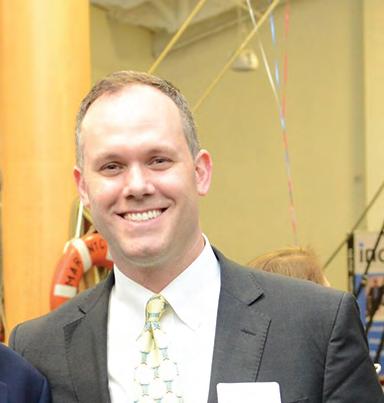 BY JOHN L. WILLIAMS, ESQ.
BY JOHN L. WILLIAMS, ESQ.

THE CORPORATE TRANSPARENCY

ACT, a law Congress passed as part of the Defense Authorization Act of 2019, will require over 37 million businesses in the U.S. to report detailed information about their beneficial owners and managers by January 2025. Not only that, but all new entity formations within 30 days of formation will need to file names of beneficial owners and managers plus the “applicant” name. The applicant, generally speaking, is defined as two people— both the individual who submits an order for a new company and the person at the service company who submits the filing to the state.


The Act may be of limited value in combating complex crimes because criminals will likely report false information or not report at all, but the Act will result in a tsunami upon unsophisticated small businesses—many of whom are “un-lawyered”. Besides placing a heavy administrative burden on business owners, the Act imposes harsh criminal penalties for noncompliance, including fines and jail time.
Getting full compliance from small business owners will be a considerable challenge for the Financial Crimes Enforcement Network (FinCEN), the agency tasked with generating and maintaining a registry of beneficial ownership information for every company in the country. Although some incorporation service providers may benefit from assisting with these filings, the long-term outlook for Delaware’s incorporation franchise is uncertain as the penalties and burdens will chill entrepreneurs from incorporating multiple entities or incorporating at all.
This burden will not be shared by larger businesses. Certain regulated businesses are exempt, as are businesses with more than $5 million in annual revenue and more than 20 employees. Nonprofits filed as 501(c)(3) organizations are also exempt, as are inactive businesses.
FinCEN offers guidance on how long beneficial ownership reports may take to complete. Simple businesses with one owner can expect to complete
the necessary report in 90 minutes. However, for more complicated structures with multiple owners, the filing is expected to take up to 11 hours to complete. Most small businesses will lack the time and resources to comply with these requirements, making it difficult for FinCEN to process the nearly 37 million reports expected to be submitted around the deadline in January 2025.
In the past, the U.S. has had ownership information in IRS records, but that is not accessible to law enforcement. A company’s ownership information is already on record at regulated financial institutions that have a duty to know their customers. However, the Corporate Transparency Act brings the U.S. regulatory regime closer in line with international standards of the Financial Action Task Force while pushing it away from the protections set out in the Fourth Amendment. The creation of FinCEN’s beneficial ownership registry prevents banks from having to conduct expensive due diligence on customers, which is why the banking lobby pushed for its passage. Law enforcement also likes that they will not need subpoenas to obtain detailed information from service companies and banks. Currently many small businesses struggle with the most basic filings, such as a Delaware Annual Report for corporations. The amount of education needed and the number of questions asked will be immense. FinCEN has much work to do to build the technology and staff requirements. If new business formation drops precipitously following the implementation, this tsunami would have ripple effects for future state budgets and industries that currently thrive in Delaware. n
THE 152ND GENERAL ASSEMBLY is in session, and all indications point to an active year for environmental legislation. In 2022, climate change and environmental justice bills were introduced but did not pass. Sponsors of those bills are expected to introduce new bills this year, and there is a high likelihood that some form of legislation will be enacted. Other environmental bills have been suggested by legislators for introduction later in this session. DNREC is also active with several regulatory initiatives, including the adoption of California’s zero-emission vehicle standards.
Introduced in May 2022, Senate Bill 305 (SB 305) addressed four major topics: greenhouse gas emissions reduction targets, climate change planning, state agency implementation requirements, and the creation of a state energy office. New legislation this year is expected to address the same issues.

The proposed emission reduction targets in SB 305 were ambitious—50% by 2030 and 90% by 2050, as compared to 2005 levels. These targets applied to both Delaware’s in-state emissions and out-of-
state emissions related to electricity consumed in Delaware. The Delaware State Chamber of Commerce has urged that emission reduction targets are directed to “net” emissions and should include mechanisms for offsets and market-based mechanisms. We expect that this year’s bill will address those topics in some fashion. We also expect that any new climate legislation will direct all state agencies to consider greenhouse gas emission reduction targets in the promulgation and amendment of regulations, and to consider the reduction targets in purchasing and procurement decisions.
In addition to setting reduction targets, the legislation is expected to codify the state’s climate change planning process, including required updates to the state Climate Action Plan, the creation of a technical committee to assist with the Climate Action Plan, and the formation of a state energy office tasked with developing a comprehensive state energy plan.
DNREC is amending 7 Del. Admin. C. § 1140 to adopt California’s most recent low emission vehicle standards. The proposed regulation will require that auto manufacturers sell a certain percentage of zero-emissions
vehicles (“ZEV”) starting with model year 2027. A ZEV credit bank will also be created by 2027, with credits first available in 2025. The proposed regulations have been the subject of several public workshops and have now been published for public comment, with a public hearing scheduled for April 26, 2023.
Environmental justice initiatives are underway at both the State and New Castle County level. Last year, legislation was introduced with the stated goal of protecting environmentally overburdened communities, as defined by the bill. The bill would have required permit applications to include an environmental justice impact report, created a new environmental justice review board, and delegated DNREC to review all applications and permit renewals for negative impacts to environmentally overburdened communities. Upon a finding of a negative impact, DNREC would have been authorized to deny issuance of a permit. Introduction of new envi ronmental justice legislation is expected this session, but as of this writing the details of the bill have not yet been made available. DNREC has cre ated a new Environmental Justice Coordinator position within its Office of the Secretary and appointed Dr. Katera Moore to that role.
Separately, New Castle County is considering environmental justice issues in the context of planning and zoning to address environmental
justice concerns. The County is creating an environmental justice advisory committee to assess whether regulatory revisions are needed.
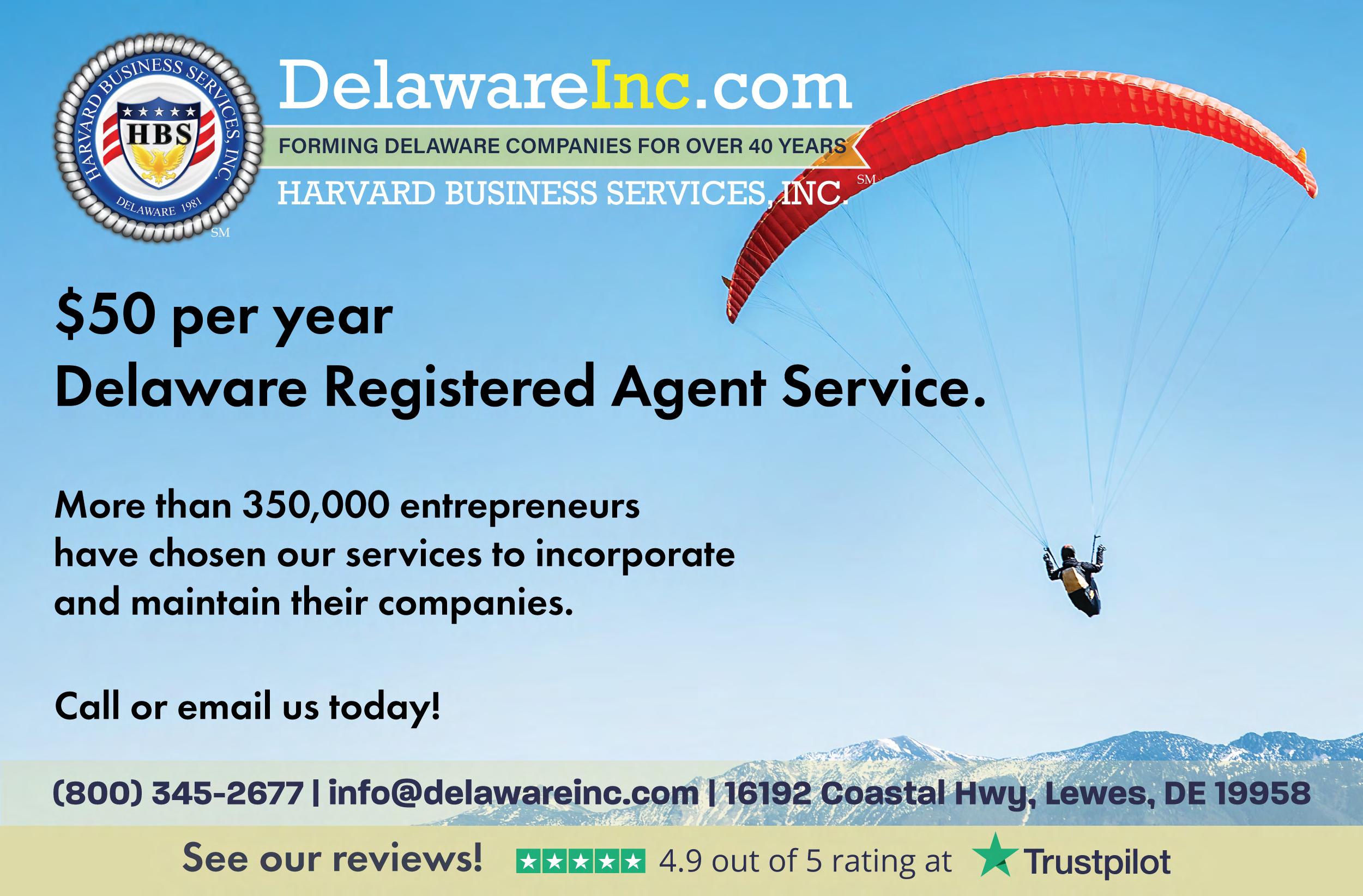

Among these recent environmental initiatives, House Bill 220 (HB 220) was introduced in April 2022 to amend Delaware’s constitution to create a right to a clean and healthy environment. This proposed amendment would have barred the State from infringing on this right, declared natural resources to be common property, and appointed the State as trustee of these resources. Although HB 220 was not enacted, there is some likelihood of re-introduction this year.
Additional legislative initiatives are likely in the coming months, potentially on a wide range of environmental topics. The State Chamber is monitoring these developments, participating in stakeholder discussions when possible, and welcomes participation by members with interest in these areas. n

BONDS are more commonly associated with financing governmental projects, the federal tax code actually allows certain private institutions ranging from 501(c)(3) nonprofit organizations (e.g., hospitals, colleges and uni versities, private and charter schools, afford able housing developments, museums, and other cultural institutions) to bioenergy and other manufacturers to finance capital projects with tax-exempt bonds, which have a lower interest rate than conventional taxable loans.
Tax-exempt bonds are required to be issued by a government entity. The entity can issue bonds for its own projects or serve as a conduit and lend the proceeds to a qualifying bor rower such as the private institutions discussed above. In Delaware, there are only a handful of conduit bond issuers, including state agencies such as the Delaware Economic Development Authority, the state’s three counties—New Castle, Kent, and Sussex—as well as certain municipalities, such as the City of Wilmington.
Typically, a financial institution (e.g., investment bank or a commercial bank) purchases the bonds and pays the purchase price to the issuer. The governmental issuer in turn lends the bond proceeds received to a qualified borrower. Because bond purchasers do not have to pay tax on the interest earned on the bonds, the purchasers are willing to accept a lower interest rate. Those savings are passed along to the borrower, resulting in a lower cost of debt service.
The interest rate on tax-exempt bonds is based on the borrower’s credit, and the governmental entity has no repayment or other obligations with respect to the bonds. Once the government issuer loans the purchase price to a qualified borrower, it steps out of the deal. With respect to bonds directly purchased by commercial banks, the issuer assigns the repayment rights to the bond purchaser, resulting in a relationship between the bond purchaser and the borrower that is akin to a traditional conventional loan.1
In addition to projects for 501(c)(3) organizations, tax-exempt bonds also may be used to finance certain types of manufacturing facilities and utility projects—work that involves sewage, solid waste, electricity, or gas, for example.

Tax-exempt bonds may be used to finance capital projects that involve, among other activities:
• Acquiring land (with certain restrictions)
• Building a new facility
• Acquiring an existing building at no more than fair market value
• Rehabilitating or expanding an existing facility
• Customizing a rental property to satisfy a particular tenant’s needs
• Acquiring new or used equipment
• Refinancing conventional debt or other tax-exempt debt used to finance capital expenditures.
Tax-exempt bonds are typically long-term debt instruments with 30-year maturity dates, depending on the useful life of the assets being financing. In addition to the design and hard costs of the project, proceeds of the bonds can also be used to pay for a portion of the costs of issuance and any required reserve funds or credit enhancement. n
For more information, contact public finance attorney Emilie Ninan, co-chair of the Finance Department at Ballard Spahr LLP, at ninane@ballardspahr.com.

Ballard Spahr’s nationally recognized Public Finance Group has participated in the issuance of more than $1 trillion in tax-exempt bonds in every U.S. state and territory. The firm advises nonprofit and for-profit organizations across industries in determining whether tax-exempt bonds are an option for financing their projects.
Get
With over 40 years of experience, and certified by the Delaware Division of Corporations, American Incorporators can help your business – whether you’re a professional firm, start up or anything in between.

Robert L. Byrd, Partner (302) 530-4531 · Robert.Byrd@byrdgomes.com
Rebecca Byrd, Esq., Partner (302) 690-4992 · Rebecca.Byrd@byrdgomes.com
Kimberly Gomes, Partner (302) 530-9093 Kim.Gomes@byrdgomes.com
Carrie Cole, Operations (302) 757-8300 · Carrie.Cole@byrdgomes.com
(302) 757-8300 phone (302) 322-6000 fax www.byrdgomes.com
10 Corporate Circle Suite 215 New Castle, DE 19720
Support lines are answered by a Live specialist, Mon–Fri 8:00 am–5:30 pm (EST), and documents are available to view and print 24/7 in our clientfriendly dashboard. In addition, we’re constantly monitoring state fees and procedures to ensure pricing and processing times are accurate.
Our services include:
• Incorporations
• UCC Filings and Searches

• Qualifications
• Document retrieval
• Maintenance Filings, (Amendments, Dissolutions, Reinstatements)
Most services available in all 50 States and D.C.

has been proven to positively impact employee engagement, improve health and workplace productivity, and bend the health benefits cost curve. According to the Centers for Disease Control and Prevention (CDC), a culture of health is a working environment where employee health and safety is valued, supported, and promoted through worksite health and wellness programs, policies, benefits, and environmental supports.
Healthcare is a significant cost to companies—averaging $7,911 in employer-paid costs per employee in 2022 with the average premium for single coverage increasing 41% since 20121. The annual cost to employers for employee productivity losses due to illness is $575 billion in the U.S. alone2. Studies have shown that employers receive an estimated $2.30 in improved performance and productivity for every dollar saved in direct health care costs. This is reinforced by research that shows companies that score high on culture of health assessment scores (CHAS) to quantify “cultures of health” tend to have lower health care cost trends without the need to reduce benefits or shift more costs to employees3
“Corporate cultures that foster health and well-being become part of the company’s DNA. Employees both consciously and unconsciously make better and more healthy decisions, and likely better business decisions,” stated Dr. Ray Fabius, president and chief medical officer of HealthNEXT, a population health consultancy. “They understand that one of their responsibilities within these companies is to take care of themselves and foster healthful behaviors within their families and coworkers. The feeling of personal responsibility, in turn, encourages teamwork and collaboration.”
Bette Francis, chief human resources officer for the YMCA of Delaware, has been participating in a Culture of Health Collaborative
 BY JILL M. HUTT, MSHP
BY JILL M. HUTT, MSHP
with six other employers in the tri-state region this past year. Led by the Greater Philadelphia Business Coalition on Health (GPBCH) and with funding from the CDC Foundation, participating organizations are using a peer-reviewed methodology developed by HealthNEXT to assess their readiness and track their progress in creating a multifaceted culture of health and wellbeing.
The YMCA of Delaware offers programs and resources to the community for youth development, healthy living, and social responsibility. “Thinking about our mission and participating in the Culture of Health Collaborative helped us formalize and brand wellness activities for our own employees, reinforcing that we value them and how they serve the community,” said Francis. “As part of the c-suite, the chief HR officer should be one of the drivers of these efforts to ensure that improvements in employees’ health and well-being are sustained over time.”
In building a culture of health, the City of Wilmington has implemented health and wellbeing programs to help employees and families address chronic conditions such as obesity and diabetes by covering services for diabetes prevention, nutrition, fitness and weight management, including the National Diabetes Prevention Program, pharmaceuticals and bariatric surgery. Dany Bourjolly Smith, the City’s benefits director, explained, “Having our Mayor and department leaders support these programs demonstrates our commitment to the health and wellbeing of our employees and their families.”
Employers of any size can access tools and guidance to build a culture of health by utilizing expertise and tools from the CDC, the regional healthcare coalition (GPBCH), national organizations such as the Health Enhancement Research Organization and Integrated Benefits Institute, and consultancies such as HealthNEXT. As part of the planning process, employers should also check in with their benefit
advisors, health plans, vendors, and public entities. According to Dr. Fabius, HealthNEXT’s approach summarizes action steps into the following ten best practice pillars:
• Leadership support and management alignment
• Wellbeing strategic plan
• Health supportive environment
• Wellbeing on-site activities
• Health and wellness across the continuum
• Data driven approach
• Marketing and communications
• Incentives and benefit design
• Engagement and navigation
• Vendor integration
Many employers already have many key components for a culture of health in place. Pursuing a benchmark culture of health and wellbeing pays dividends by improving health, productivity, and cost reduction for employers. Advancing a culture of health within organizations also enables employers to attract and retain employees and to be an employer of choice. n
1. Premiums and Worker Contributions Among Workers Covered by EmployerSponsored Coverage; Kaiser Family Foundation
2. Poor Worker Health Costs U.S. Employers $575 Billion A Year; Forbes
3. Companies That Promote a Culture of Health, Safety, and Wellbeing Outperform in the Marketplace; Journal of Occupational and Environmental Medicine
Jill M. Hutt, MSHP, is vice president of member services at the Greater Philadelphia Business Coalition on Health, which serves employers in southeastern Pennsylvania, southern New Jersey, and Delaware.
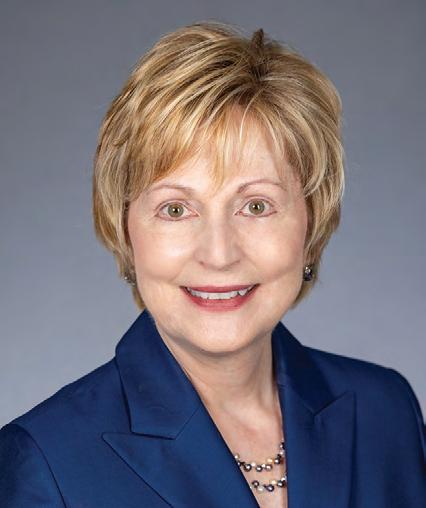
At Beebe Healthcare, we are proudly leading the way for specialty surgery in Sussex County. From surgical oncology and bariatrics to orthopedic and cardiothoracic procedures, our highly skilled and specialized surgical teams use the latest technologies to streamline and optimize care for every patient treated to ensure the best outcomes. Scan to learn more.
beebehealthcare.org
The Best Care is Here.
Studies have shown that employers receive an estimated $2.30 in improved performance and productivity for every dollar saved in direct health care costs.
WITH THE ONSET OF THE PANDEMIC, there have been more and more headlines about the burnout crisis in health care. The crisis is real, awareness is important, but the time is now to make meaningful changes.

So, what is burnout? Burnout is defined by the World Health Organization (WHO) as a syndrome resulting from chronic workplace stress. In other words, it is an injury related to occupational exposures. This could be compared to other occupational injuries, such as a construction worker sustaining an onsite injury. With this in mind, it is important to emphasize that it’s not a generational issue. It’s not a lack of resilience. It’s not a mental health problem. And it’s most certainly not a new problem. While the pandemic may have exacerbated the issue and caused more awareness, burnout has been impacting health care workers and patients for decades.
Currently, approximately 60% of nurses and physicians are experiencing burnout. Physicians are at higher risk for burnout than workers in other fields, even those who work the same number of hours and have the same level of training. When experiencing burnout, health workers suffer emotional exhaustion, cynicism, and a decreased sense of selfefficacy. Anxiety, depression, suicidality, substance misuse and abuse, and relationship issues are all associated with burnout.
At its best, medicine can be a very challenging profession, made harder by increasing complexity. For example, we work in a field constantly adapting to advances in medical decision-making, increasing administrative tasks, evolving technology, changes to electronic documentation, and ongoing regulatory demands. It is obvious how this work environment has become unwieldy and even dangerous to workers. Did you know that for every one hour a clinician spends in direct contact with patient, they spend

an average of two hours on documentation and administrative tasks? With historically high rates of turnover, staffing shortages, financial pressures, and an increased number of patients with mental health issues, it can be hard to see a light at the end of the tunnel.
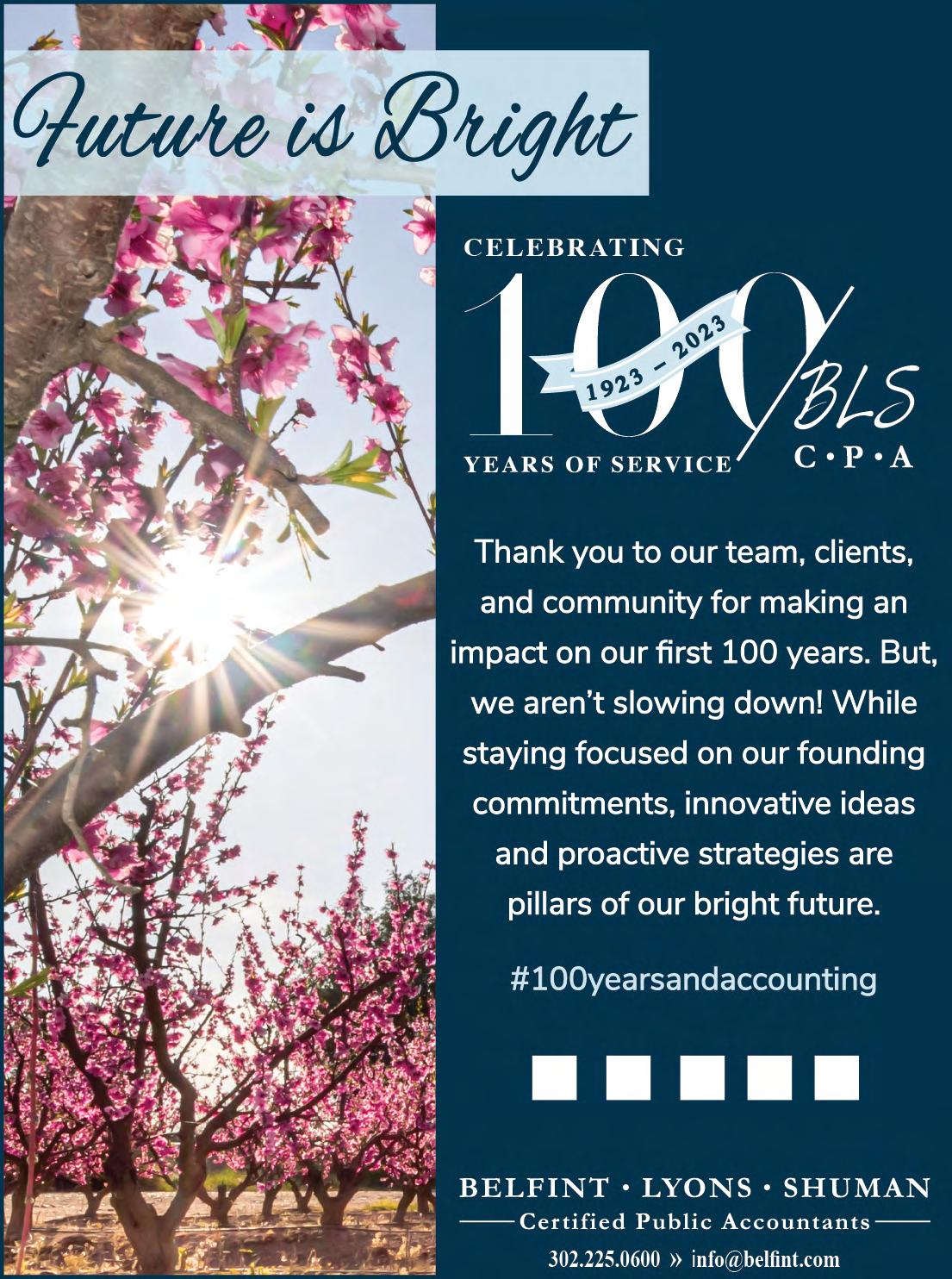
Burnout affects more than just the worker; it is associated with diminished quality of care, increased patient safety concerns and suboptimal patient experiences, all affecting patient outcomes in significant ways. Burned out workers are more likely to leave their job and leave the profession. As one can expect, this will exacerbate access to care and impair our ability to achieve health equity. This all matters to those of us who rely on the healthcare system. Burnout affects us all.
We can and must work to unravel one of the most pervasive health care crises, this time, within our own system. In addition to providing support for occupationally induced emotional distress and enhancing access to treatment for mental health needs, we need to prevent harm. This includes radical changes to our health care system that result in decreased administrative and work burden, and improved efficiency through thoughtfully optimized technology. At the hospital and industry level of leadership, we need a transition away from a productivity-based model of care. The culture of medicine will benefit from a shift towards realistic expectations of our health care workers, while creating space for self-care and self-compassion. These changes need to be embraced at every level of the system, from our regulatory and payor groups to our local leaders, our colleagues, patients, and families.
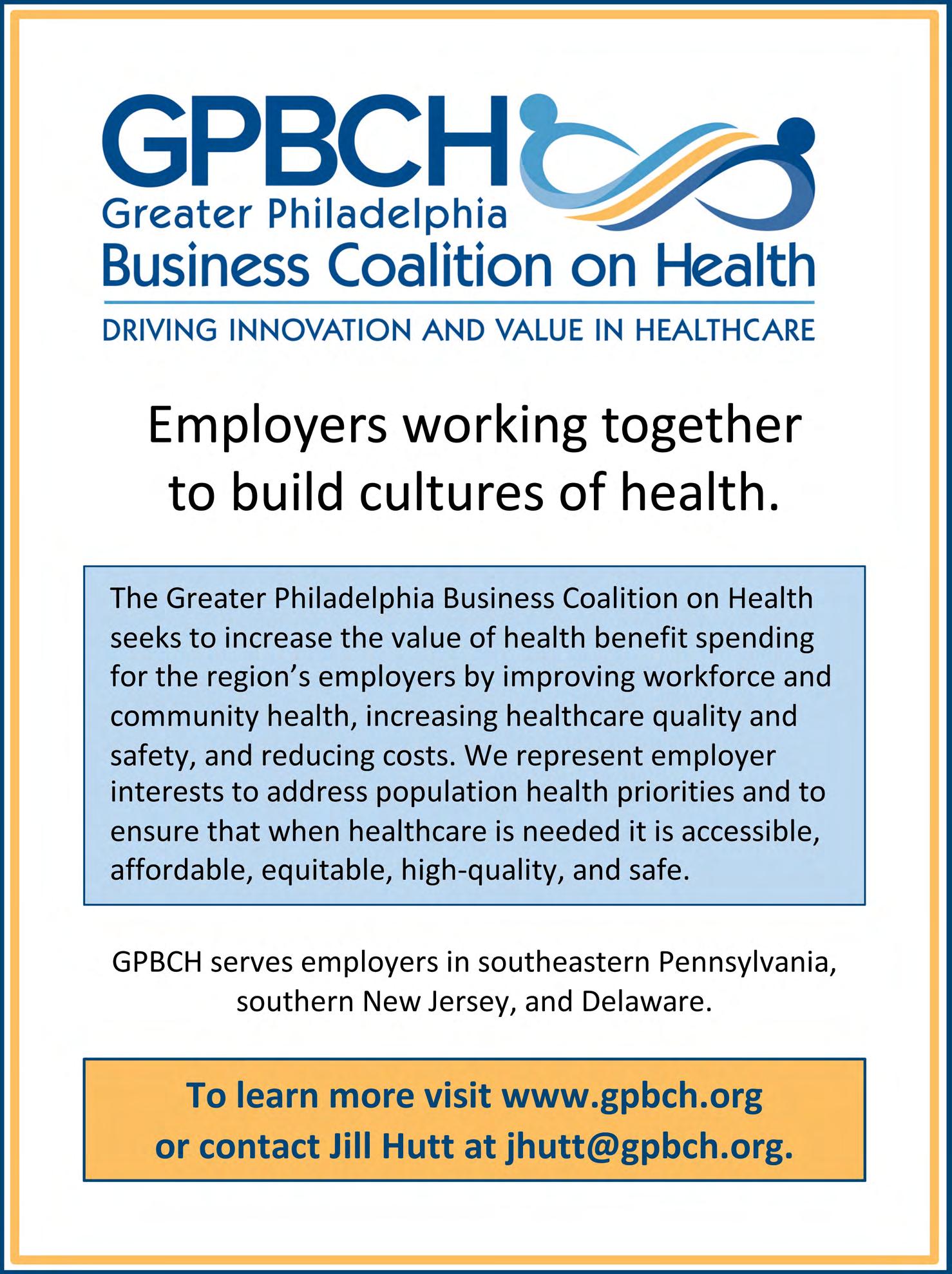
Our health care system hangs in the balance; if you are concerned about how things are today, then it is easy to see that it is time for meaningful change. Now and always, your health care teams will continue to care for you and your families while continuing to push forward well-being initiatives and culture changes for the betterment of our entire population. n
Maureen Leffler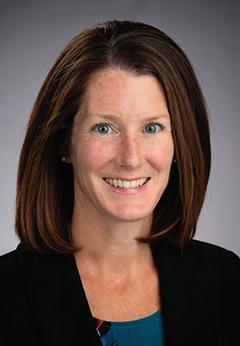 Health.
Health.
is assistant vice president and chief well-being officer at Nemours Children’s
It is important to emphasize that it’s not a generational issue. It’s not a lack of resilience. It’s not a mental health problem. And it’s most certainly not a new problem. While the pandemic may have exacerbated the issue and caused more awareness, burnout has been impacting health care workers and patients for decades.
“I SUFFER FROM HIGH-FUNCTIONING ANXIETY and I’m getting overwhelmed”: a statement that should be identically viewed and supported as an employee disclosing “I have diabetes”. These are two challenges employees battle with regularly, however, one has a stigma attached to it and can make being vulnerable harder out of fear of judgment or repercussions. There has been a cultural shift among us for quite some time, detected prior to the COVID-19 pandemic. Whether you equate the cultural shift as an aftermath of the pandemic or the priority shift between generations, the heightened need and expectation for a mentally healthy workplace is prevalent.
The U.S. Surgeon General has stated that the nation’s mental health crisis is one of the driving factors in the recent U.S. labor shortage. According to the APA’s 2022 Work and Well-being Survey, 81% of workers reported they will be looking for workplaces that support mental health. With the average full-time employee spending approximately half of their life at work, you can see why it’s a dire need to have organizations thriving beyond the basic standards of a healthy workplace.

So what does this mean for you and your organization? What are steps you can take to ensure you are on the right side of the playing field?
As a talent and culture leader who is obsessed with learning and
development, my first answer will always be continuous education. Knowledge is your most powerful resource in aiding your organization and team in managing mental health in the workplace. Do your research, listen, and truly understand the needs, wants, and challenges of your workforce. Be open and vulnerable when seeking to understand and be sure to foster an environment where it’s safe to talk about mental health and the challenges that come with it. You may not have all the answers initially, but I am a firm believer that if you are genuine, open, and inclusive about the journey, it goes a long way with others’ ability to feel connected.

In addition to being open about your learning journey and dedication to the cause, providing training for your leaders and other mentors in your company is a must. Front-line leaders are often the first to notice
behavioral changes. They need to be equipped to handle difficult conversations and knowledgeable around what resources and policies are in place in order to provide support.
Other strategies to consider with the goal of promoting workplace mental health are flexibility in how and where employees work, promoting a work-life balance, and increased benefit offerings. What I would consider to be the bare minimum is a single strategy, which isn’t good enough. You must make the cultural shift towards a mentally healthy workplace a priority and in a sustainable and regularly advocated way.
Mental health is no longer an individual’s problem to solve alone. Organizations must take responsibility by providing the right support and culture. That is how you make real change and show your people you care about them and their well-being. n
•
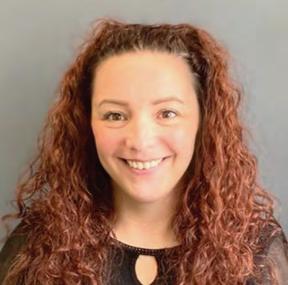
Mental health is no longer an individual’s problem to solve alone. Organizations must take responsibility by providing the right support and culture.
With the ChristianaCare Business Health Solutions Program, you can leverage the clinical expertise of Delaware’s largest healthcare network to provide high-quality, cost-effective healthcare services for your organization.
These customizable direct-to-employer packages keep your healthcare costs down while improving employee wellness and workforce productivity.
Our services include:
• Virtual Primary Care
• Virtual Behavioral Health
• Primary Care Centers
• Destination Surgery
• Onsite Vaccinations
• COVID-19 Symptom Monitoring
• Wellness Programming and Care Management
ChristianaCare’s clinical services are consistently ranked among the best in the nation by multiple independent quality rating services including, Healthgrades, U.S. News & World Report and Newsweek.
 BY HEATHER FARLEY, M.D., MHCDS, FACEP
BY HEATHER FARLEY, M.D., MHCDS, FACEP
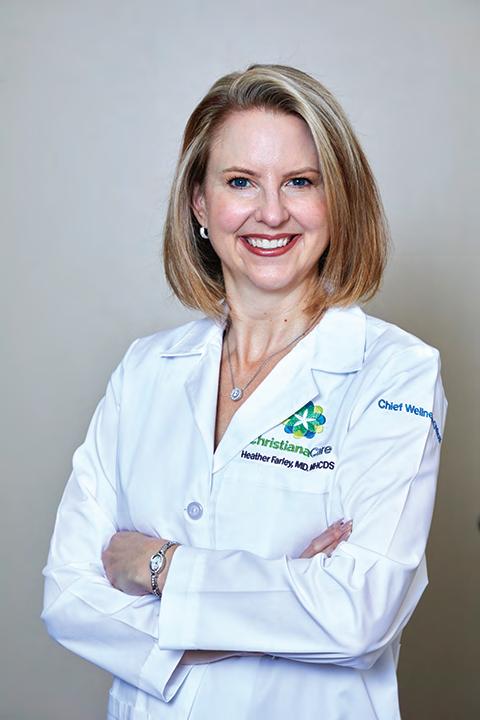
FINDING THE BALANCE between work and home can feel like riding a seesaw. Most of us remember our playground days of soaring high on the top of a seesaw, often followed by a quick, sometimes painful, descent to the ground.
That fluctuation is why I think about wellbeing in terms of creating harmony or integration in our lives. The balance everyone talks about is nearly impossible to attain.
At ChristianaCare, our Center for Worklife Wellbeing exists to help our caregivers find meaning, connection, and joy in the work they do. Our mission is to improve the workplace environment and help our caregivers flourish. That’s never easy in health care, but particularly challenging after the past three years.
We know the importance of creating an environment where people can thrive at work. To do this, an organization must do more than just tell their employees about available resources. They have to show them as well. Wellbeing has to be part of the strategic plan so organizations can measure, track, and hold themselves accountable.
I call this fixing the coal mine.
It’s not enough to make the canary stronger and then expect it to survive. It’s about removing inefficient administrative burdens that can drive dissatisfaction and stress. It’s about fostering an environment where employees feel valued in the work they do, by the people around them and in how their efforts are received.
One way that companies can do this is by creating a culture of safety. At ChristianaCare, we have made it a goal this year to train 50% of our leaders in psychological first aid so they know how to respond to employees who are struggling.
We are not turning our leaders into therapists—unless they already
are!—but we have recognized that they need skills and tools to identify when someone is struggling. That way, we can get them connected to help. Using this program, which we developed at ChristianaCare, we are helping to decrease the barriers to care for our caregivers.
We also need to remember that taking breaks isn’t a sign of weakness. Microbreaks throughout the day make us more effective. Rather than scheduling hour meetings back-to-back, consider making them 50 minutes to build in a break that allows people to get a snack, return an email, or even go to the bathroom. Giving people a say in how they spend their workday and doing more of what they find meaningful also helps employees feel more empowered.
We also need to recognize the positive. One way we do that at ChristianaCare is through the Thank You Project, where we bring patients and families back to explain what the experience was like for them. We include the whole caregiving team to show the impact of their work. Our caregivers leave knowing their work was not only appreciated but important. Wellbeing initiatives are a fantastic opportunity for businesses to create a healthier world that benefits employees and the bottom line. Employees who feel good about themselves take fewer sick days, build better relationships with colleagues and clients, and feel ready to tackle complex tasks. All of that ultimately drives positive business outcomes. n
Delaware offers abundant opportunities for emerging talent to launch their careers. As an employer, help give them a head start in building a sense of community in a place that is ideal to live, work, and play.


Intern Delaware is an ‘add-on’ to your company’s internship program where summer interns receive access to professional development programming and networking opportunities designed to help them understand the unique aspects of Delaware’s economy and culture.





To learn more, contact Helana Rodriguez at hrodriguez@dscc.com.
YOU’VE HEARD THE TALK... NOW JOIN THE CONVERSATION



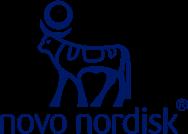

JUNE 7 • 10:00 AM - 12:45 PM Delaware State University, Dover, DE
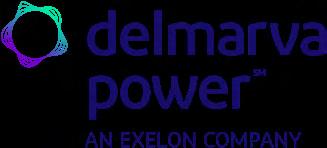


Presenting:
Gold:

JUNE 7, 2023 • #EOSCONF
MAY 17, 2023
Networking Breakfast with Appoquinimink School District

Join
JUNE 7, 2023
Each June as the General Assembly comes to a close, the Endof-Session Policy Conference updates you on the important initiatives the State Chamber has played a key role in shaping. The conference also features updates from our strategic partners and a legislative wrap-up from the House and Senate leadership.
Members: $75
Future Members: $85
MAY 19, 2023
11th Annual DYPN Golf Outing

The Delaware Young Professionals Network will tee off for an afternoon of golfing and networking. Foursomes will include three young professionals and one mentor.
Nine Holes & Happy Hour: Young Professionals / Members: $50
Future Members: $60
Happy Hour Only: Young Professionals / Members: $10
Future Members: $20

JUNE 13, 2023
Networking Breakfast at Wilmington University

Start
FREE for members
When
Fill
The newly-created 10,000-square-foot garden plaza at The Chancery Market Food Hall & Bar will welcome visitors in May 2023.

Designed by the Delaware Center for Horticulture, this outdoor space will feature green lawns, new landscaping, decorative hardscaping, and seating for 150. In addition to al fresco dining, an indoor/outdoor bar, a fireplace, and a large screen TV, the plaza is carefully created to be conducive for professional business meetings and co-working. Families and visitors will also enjoy games, live music, and other seasonal activities, surrounded by views of the downtown Wilmington skyline.
For upcoming news, events, and more information on booking a private party, visit their website at thechancerymarket.com.
In partnership with the SL24:Unlocke the Light Foundation and Sean’s House, Saint Mark’s has established Sean’s Room, a classroom that has been converted into a type of lounge for students to relax, ask questions, and learn about mental health.
Sean’s Room will be staffed by University of Delaware trained peer specialists two days per week during lunch periods. The specialists will work closely with the Saint Mark’s guidance staff to keep continuity of care consistent while
handling everyday student concerns.
“We recognize that students need a space to call their own, somewhere they can unwind and let go of the stress of the day,” said Principal Diane Casey. “The room will serve two purposes. Students who would like to meet with a trained peer specialist will be able to do so in a relaxed and comfortable setting. But the room will also be available for students who just need a few minutes of quiet during their day to reset and regroup. It will be a place where they can pause, take a deep breath, and then head off to math class refreshed and ready to tackle the rest of their day.”
Whisman Giordano & Associates, LLC (WGA) named Lisa
DeRose has over 30 years of experience. She joined WGA as a partner in 2013 and is a steadfast leader committed to the firm’s success. DeRose is a recognized community leader who has a strong commitment to mentoring. She helped found the Delaware chapter of the ACE Mentor Program in 2010. This program has given over $100,000 in scholarships to high school students interested in building design and construction careers.

Navient, a leader in technologyenabled education finance and business processing solutions, announced the appointment of David Green as executive vice president of consumer lending. Green will continue as CEO of Earnest.
In this expanded role, Green is responsible for Navient’s suite of education financing tools and services, which are offered under the Earnest and NaviRefi brands.
“Green is a creative strategist and innovator supporting families on the college journey,” said Jack Remondi, CEO and president of Navient. “Our consumer
lending business is a key to Navient’s long-term success, and I am excited about our vision for growth.”
Denis Dunn, who leads the state external and legislative affairs team as state president in Maryland, Delaware, and Washington, D.C., retired after nearly 23 years of service, effective April 11, 2023.

“I will miss AT&T, especially my friends and colleagues within E&LA,” says Denis. “Our work together has been engaging, sometimes challenging, but always rewarding. I am grateful for the opportunity to work with so many good people.”
Denis’s leadership is public-spirited. In his efforts to advance AT&T policy objectives, Denis drew upon his experiences as an elected councilman and prosecutor in his native Lakewood, Ohio, as a reserve officer in the U.S. Marine Corps, a staff judge advocate in the Ohio Army National Guard, and as a U.S. Peace Corps Volunteer in Jamaica.
“AT&T investment and engagement advances the common good within communities, and our nation,” says Denis. “There is great joy in connecting people and building community.”
Verdantas, a private-equity-backed solution provider of engineering, planning, and science services to support their clients’ sustainability, resiliency, and strategic infrastructure objectives, acquired Southern California-based Leighton, a well-respected company known for its technical expertise and

Marnie Oursler, president of Marnie Custom Homes, was named the 2022 Custom Builder of the Year Award, presented by the National Association of Home Builders (NAHB). Each year, NAHB honors outstanding individual achievements within the custom home building industry at an annual event known as The Nationals. Oursler was honored during the International Builders’ Show in Las Vegas, NV.
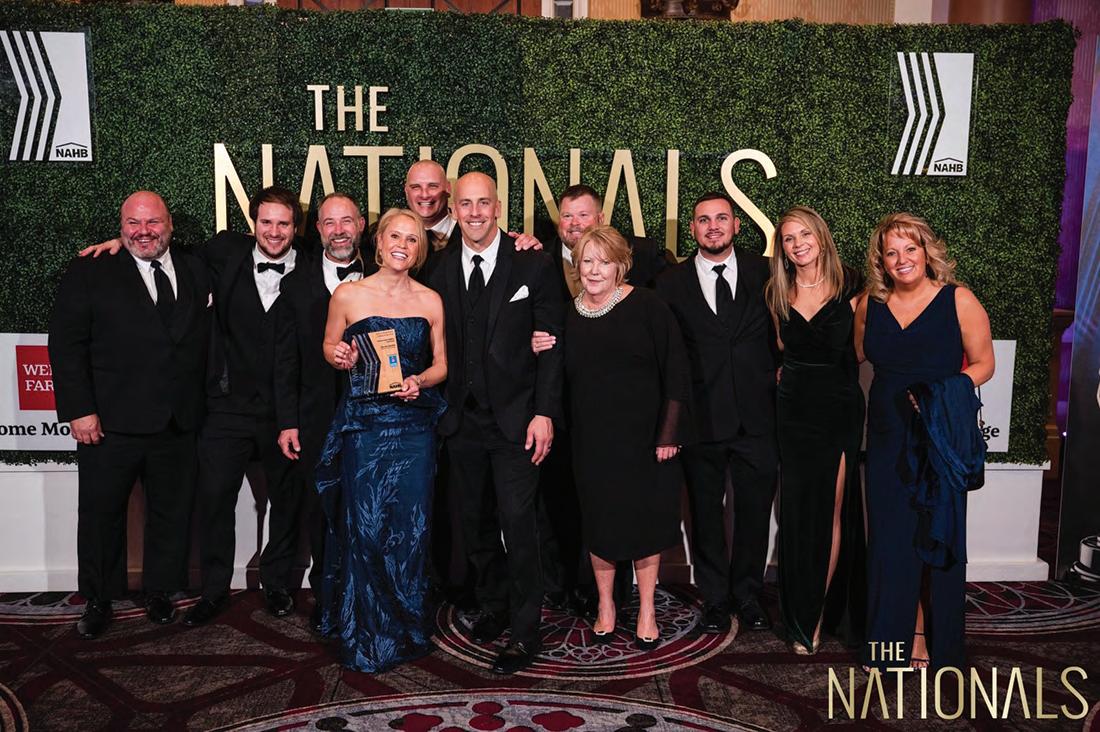
Recognizing custom builders for their innovative achievements, professional leadership, and creativity in crafting one-of-a-kind custom homes, NAHB’s Custom Builder of the Year is the highest honor awarded within the custom home building industry. Oursler is the first female recipient as well as the first Delaware-based builder to receive the esteemed award.
“I love building homes,” says Oursler. “But my best build is my team at Marnie Custom Homes—building this has been the most gratifying. We have a lot of talent, and together we can do amazing things.”
deep knowledge of the geo-environmental conditions in the region. This addition to Verdantas significantly strengthens its western U.S. presence and brings added depth to their geologic, geotechnical, and materials capabilities.
“Leighton joining Verdantas marks a strategic inflection point in our ability
to expand our service offerings to clients and extend our geographic reach,” said Gerry Salontai, CEO of Verdantas, “We are thrilled to have Leighton and their reputation of bringing the best and brightest people to each of their client’s projects. This commitment to excellent work for clients and Leighton’s efforts to capitalize on a collaborative environment fits well into Verdantas’ intentional people-focused approach.”
Highmark Blue Cross Blue Shield Delaware announced its first quarter BluePrints for the Community grant recipients. BluePrints for the Community is a donor-advised fund at the Delaware Community Foundation and has invested over $35 million to improve health outcomes across the state.
“By targeting specific aspects of health and well-being, we’re advancing real change for Delaware communities,” said Nick Moriello, president of Highmark Blue Cross Blue Shield of Delaware. “We’re proud to support the great organizations making a difference throughout our state.”
BluePrints grants awarded in quarter one: Vision to Learn; Community Education Building; Jewish Family Services of Delaware; West End Neighborhood House, Inc.; Lutheran Community Services, Inc.; Make-A-Wish Philadelphia, Delaware & Susquehanna Valley; Down Syndrome Association of Delaware; Urban Bike Project of Wilmington; St. Patrick’s Center, Inc.; and Odyssey Charter School.
The WSFS CARES Foundation, the charitable giving arm of WSFS Bank, announced it has provided grants to three community organizations in Delaware as part of its continuing series of philanthropic activities by WSFS and the Foundation:
Delaware Business Roundtable Education Committee (DBREC) received $75,000 to support DBREC’s Student Success 2025 initiative, a statewide plan for Delaware public education that aligns with the Delaware Business Roundtable’s growth agenda to support
economic development.
Freire Charter School Wilmington received a $100,000 matching grant to support converting a secondary building into a gymnasium with a full-sized court, training room, and spectator seating to help boost enrollment and retention rates, encourage athletic participation, and provide a space large enough for all-school gatherings.
“Revitalization and business economic empowerment, education, and leadership development are among the core pillars of the WSFS CARES Foundation,” said Patrick J. Ward, executive vice president, Pennsylvania market president at WSFS Bank and chairman of the WSFS CARES Foundation. “By working together with organizations with a shared focus on these areas like the Delaware Business Roundtable Education Committee and Freire Charter School Wilmington, we’re helping to bring WSFS’ mission of ‘We Stand for Service’ to life and enriching our communities.”
The Pete du Pont Freedom Foundation announced that Vance Kershner has been selected as this year’s recipient of the esteemed Pete du Pont Freedom Award. Kershner is the founder of LabWare, Inc., a leading global software company in laboratory informatics, and serves as the company’s president and chief executive officer. The nationally recognized award will be formally presented to Kershner this fall during the annual Pete du Pont Freedom Award ceremony at the Hotel du Pont on September 26.
“Vance Kershner is a risk-taker and change maker,” said PDFF Board Chair Thère du Pont. “Like my father, Vance

believes in championing bold ideas, giving back to the state, and building entrepreneurial ecosystems that are truly impactful. We are thrilled to honor Vance with the Pete du Pont Freedom Award this year.”
“It’s an honor to receive such a prestigious award and be recognized with such an accomplished group of former honorees,” said Kershner. “LabWare, and me personally, have tried to be supportive and promote the development of new ideas and talented entrepreneurs, whether with students or in the workforce and provide assistance to help overcome some of the challenges they face. Governor duPont changed the business climate in Delaware, using legislation to create new industries and one of the most business-friendly states in the country. I only hope LabWare, myself, and my children live up to the examples that have been established before us.”
Croda, Inc., the company that uses smart science to create high-performance ingredients and solutions that improve lives, has promoted Josh Dube to site director of its Atlas Point facility in New Castle, Delaware.
“Josh leads with purpose. He cares about the greater good and empowers others. As a thoughtful leader, he combines his technical skills with passion to grow our teams of employees. We are pleased to have him direct our Atlas Point operations,” said Russ Niksic, managing director and senior vice president at Croda.
Did you miss the Chamber Chatter online? Here are our most popular posts on social media...








@Delaware State Chamber of Commerce
@DelawareStateChamber @DEStateChamber
JP Sawyer: Great morning at the base of our Delaware Air National Guard Delaware, Army National Guard here in Delaware.


Recognizing the significant sacrifices and contributions that these men and women make every day for our state and nation. Thank you.
Delaware State Chamber of Commerce thank you for yet another great event!
Mike Smith: You’d be hard pressed to find a nonprofit organization with as much community impact as Easterseals Delaware & Maryland’s Eastern Shore. I’m looking forward to honoring them on the House Floor tomorrow to kickoff their Volleyball Challenge fundraiser!
I’m also a fan boy. My sister-in-law is on the cover of this month’s addition of the Delaware State Chamber Delaware Business magazine! Shoutout to Trish, all the other SLP’s and other healthcare providers who support our community each and everyday!
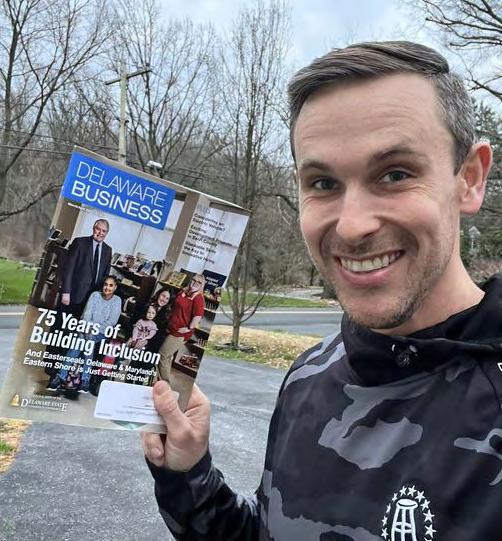
Mark Brainard: We were proud to partner with the Delaware Manufacturing Assoc. and DEMEP for today’s Spring Manufacturing & Policy Conf. at our Terry Campus in Dover. Special thanks to @JohnCarneyDE and Bill Keller of Bank of America for their keynote remarks. @DEStateChamber @delawaretech
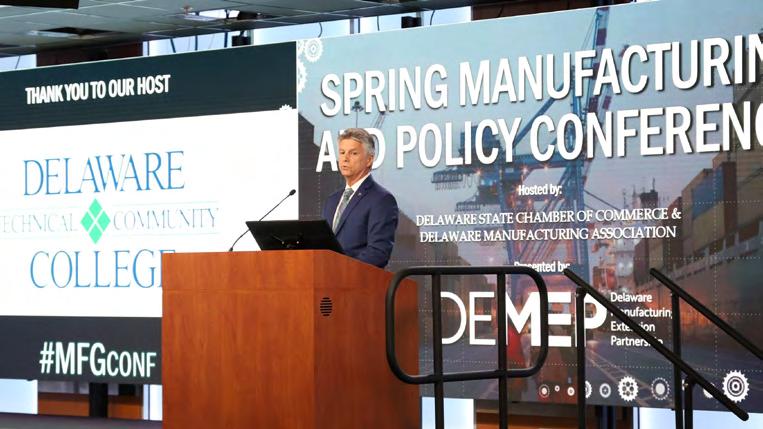

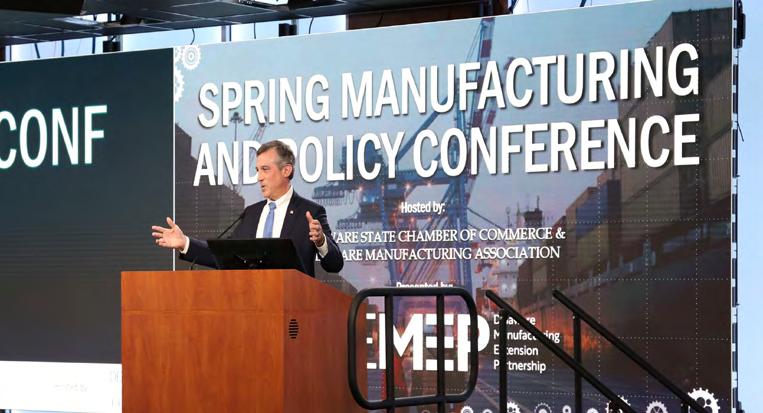
Michael Smith: It was a pleasure sitting down with Kelly Basile and James H. Lee for this great conversation.

We spoke about how four generations in the workplace can collaborate harmoniously, and how Navient has implemented programs such as the Sponsorship Program and employee resource groups in order to put that into action.
SBA Delaware District Office: What a pleasure to attend and participate at the Spring Manufacturing & Policy Conference conducted at Delaware Technical Community College and co-sponsored by Delaware State Chamber of Commerce.
Secretary of Labor Karryl Hubbard was on hand to share her ideas on how to attract and retain top #talent in support of the Delaware business ecosystem. #business #growth #manufacturing
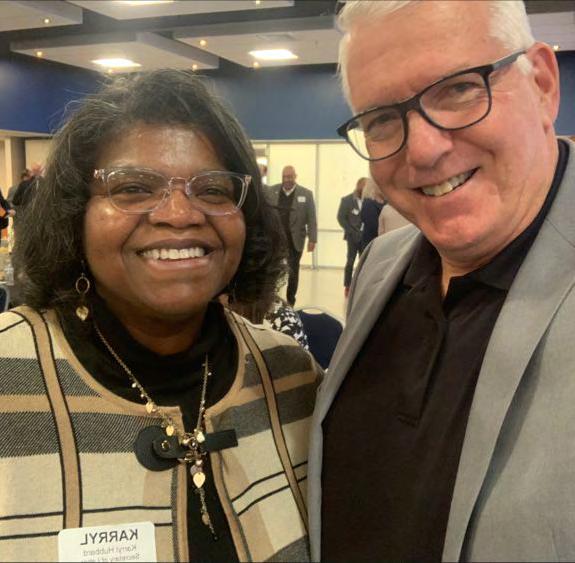
The State Chamber of Commerce staff works for you, serving our member companies and organizations statewide. This State Chamber staff directory lists phone numbers and email addresses, as well as individual areas of responsibility. If you need business assistance or information, please don’t hesitate to call.
Michael J. Quaranta President

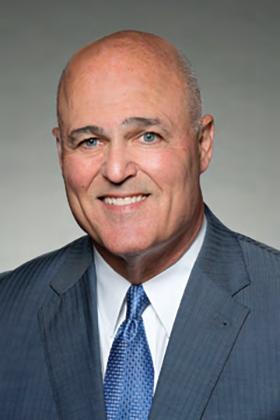
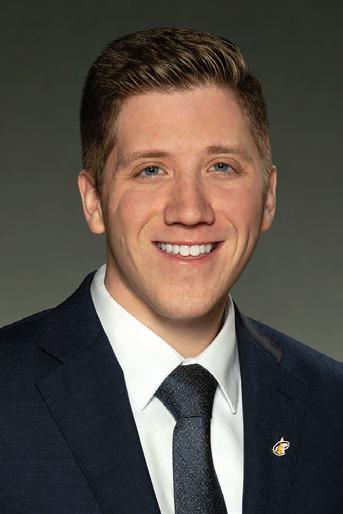
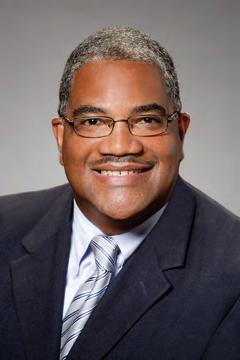
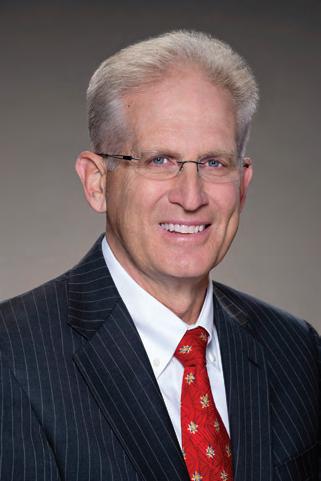
(302) 576-6585
mquaranta@dscc.com
Kelly Basile Vice President, Strategic Communications (302) 576-6564




kbasile@dscc.com
Regina Donato Manager, Program & Communications (302) 576-6567
rdonato@dscc.com
Fred Miller Advertising/Retention (302) 576-6579
fmiller2@dscc.com
Ken Evans Account Executive (302) 576-6576 kevans@dscc.com
Melissa Brayman Office Administrator (302) 576-6572
mbrayman@dscc.com
Kerri Welcher Events Manager (302) 576-6566
kwelcher@dscc.com
1201 N. Orange Street, P.O. Box 671 Wilmington, DE 19899-0671
(302) 655-7221
www.dscc.com facebook.com/delawarestatechamber
twitter: @DEStateChamber
Helana Rodriguez Director, The Partnership, Inc. (302) 576-6575

hrodriguez@dscc.com
Tyler Micik Director, Public Policy & Government Relations (302) 576-6590
tmicik@dscc.com
Matt Volk Digital Advertising Sales (302) 576-6571
mvolk@dscc.com
The mission of the Delaware State Chamber of Commerce is to promote an economic climate that strengthens the competitiveness of Delaware businesses and benefits citizens of the state. The Chamber will provide services members want; it will serve and be recognized as the primary resource on matters affecting companies of all sizes; and it will be the leading advocate for business with government in Delaware.
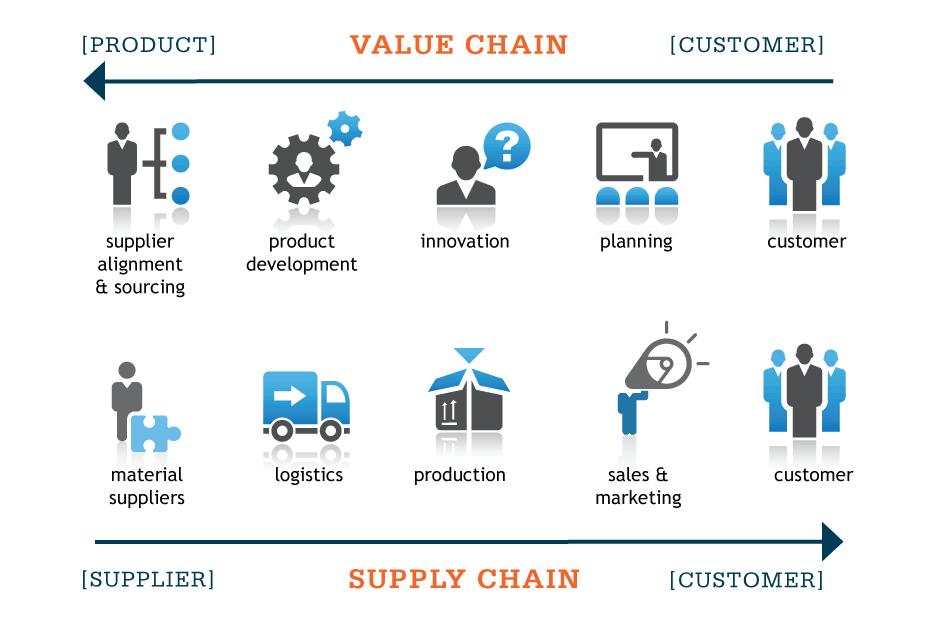









Risk is everywhere. It doesn’t sleep. It often shows up uninvited and at the most inopportune time. Manufacturers most trusted resource, the NIST-Manufacturing Extension Partnership, provides a step-by-step roadmap to help manufacturers address risk, increase visibility and create supply chains that function at optimum capacity.


We’ll show you how to apply constraint theory concepts that address risk, and account for total cost of ownership, so you may make informed sourcing decisions that increase the flow of products from suppliers to customers, using a value system model.

Today in Delaware, more than 100,000 of our neighbors will go without a nutritious meal. While right around the corner, tons of good, fresh foods are going to waste.
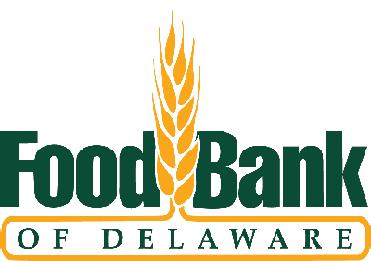
You can rescue this food with the help of the 302 Food Rescue app. Or you can encourage your employer to donate food to be rescued and donated to feed those in need.

Find out how at 302FoodRescue.org or scan this code to download the app today.
302FoodRescue.org

Every day in Delaware, food that could go here goes here instead.